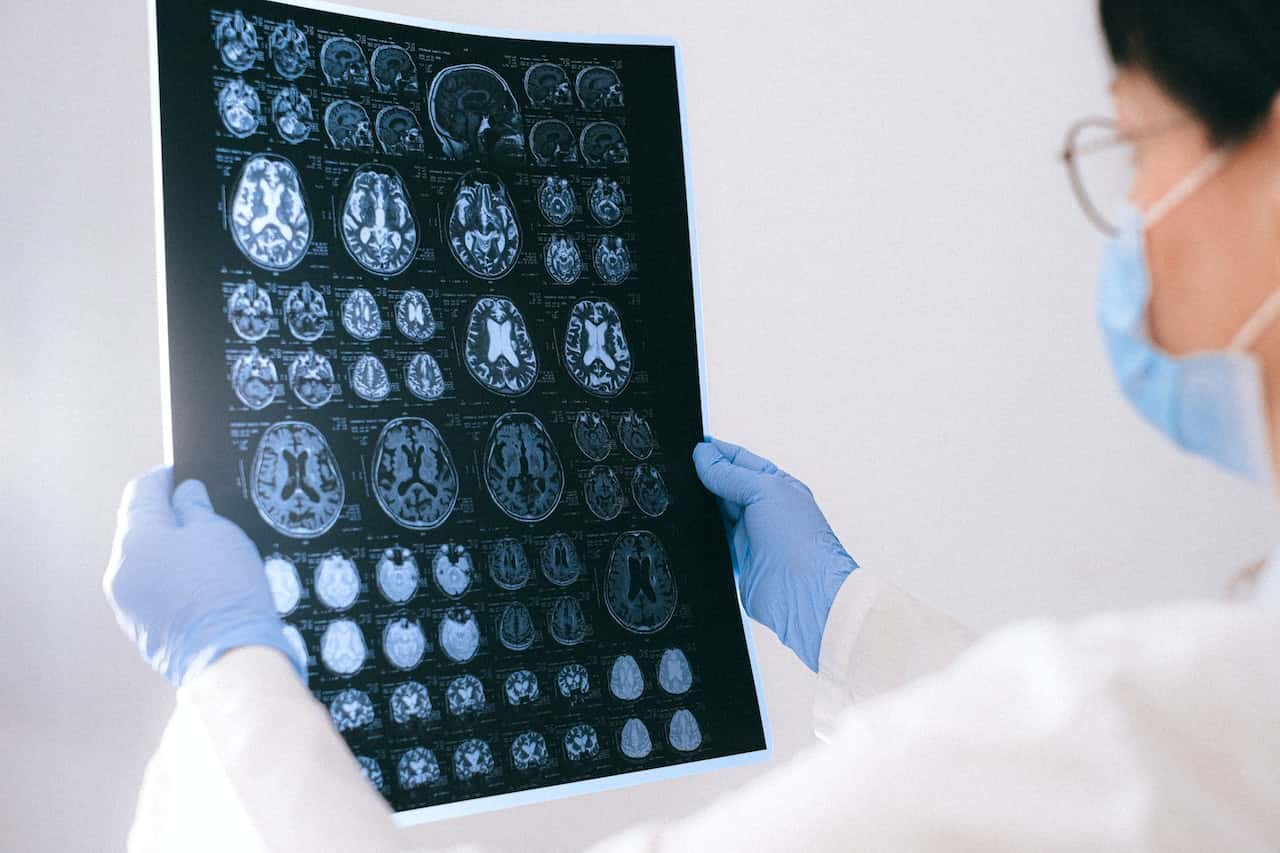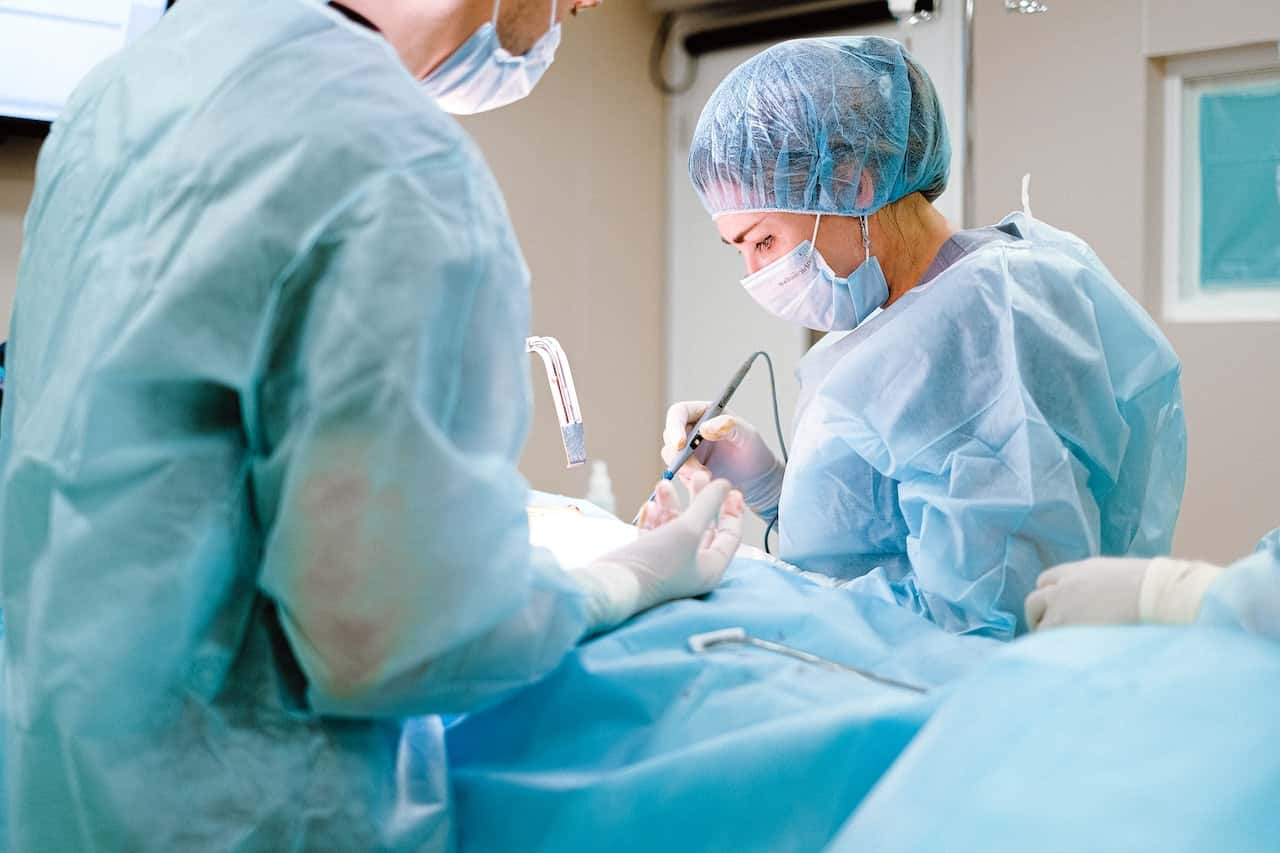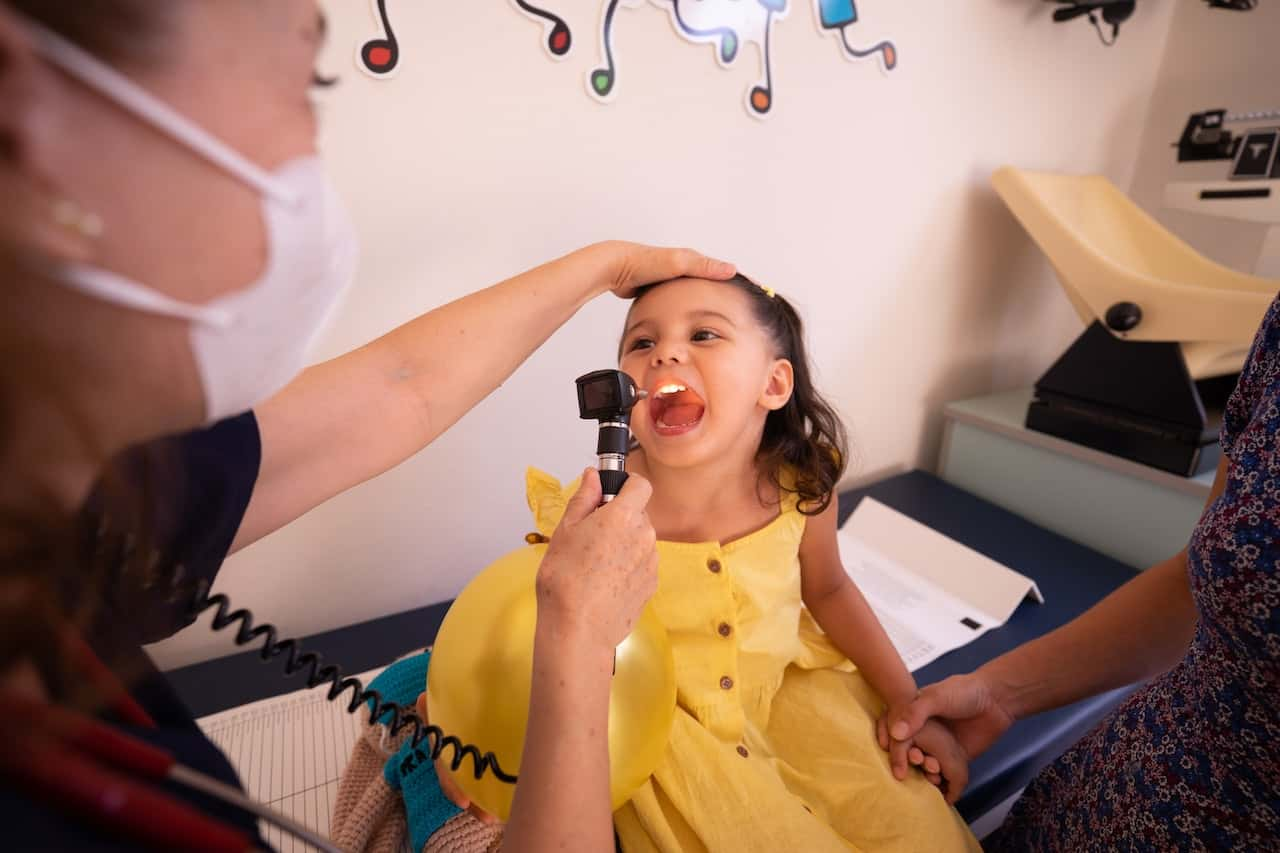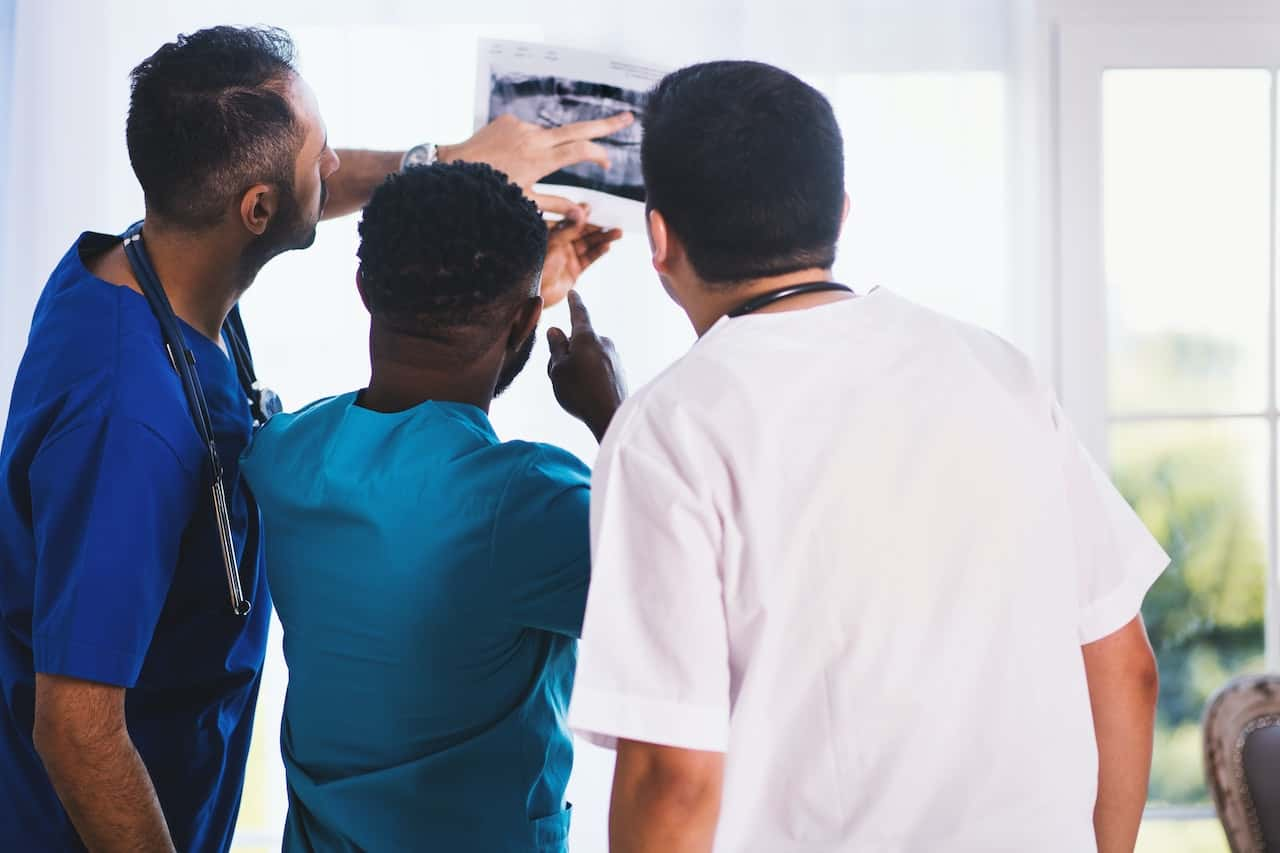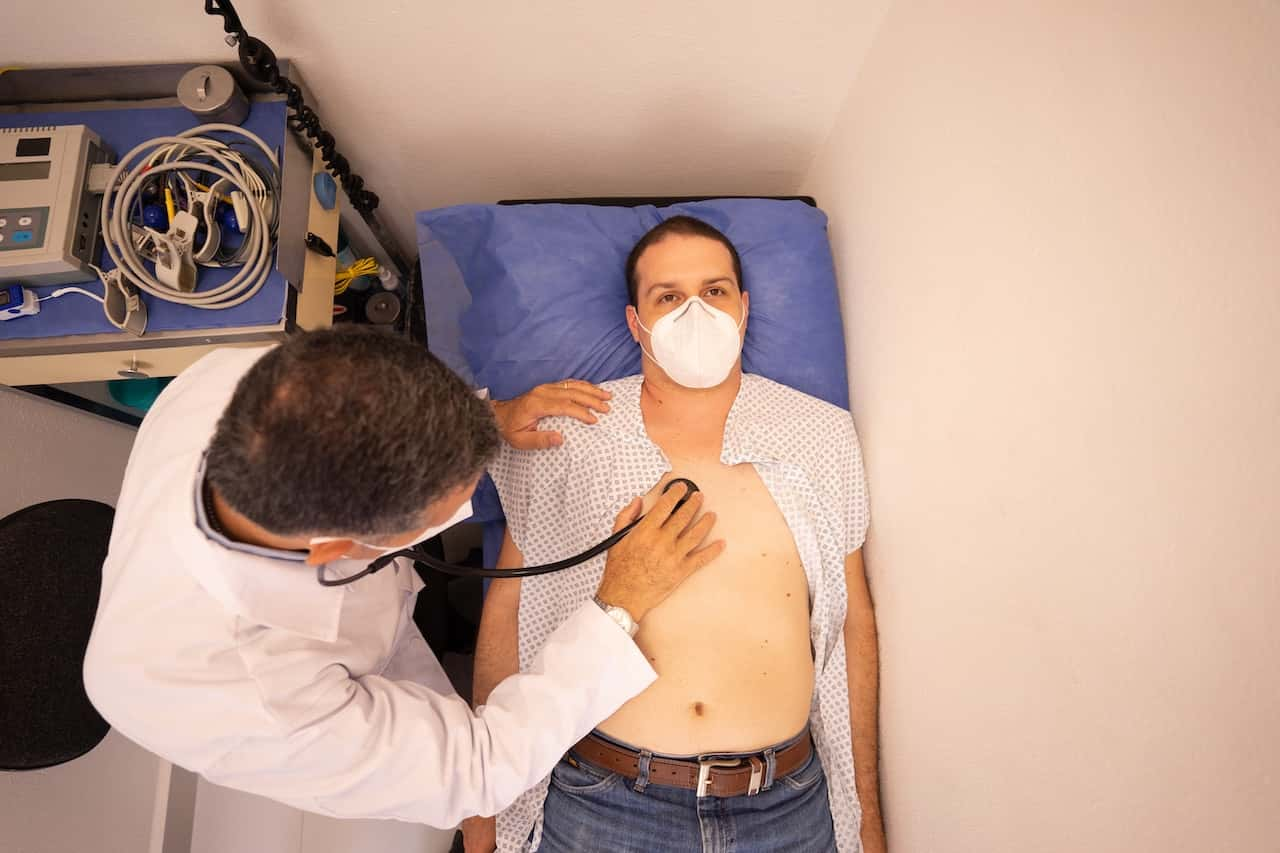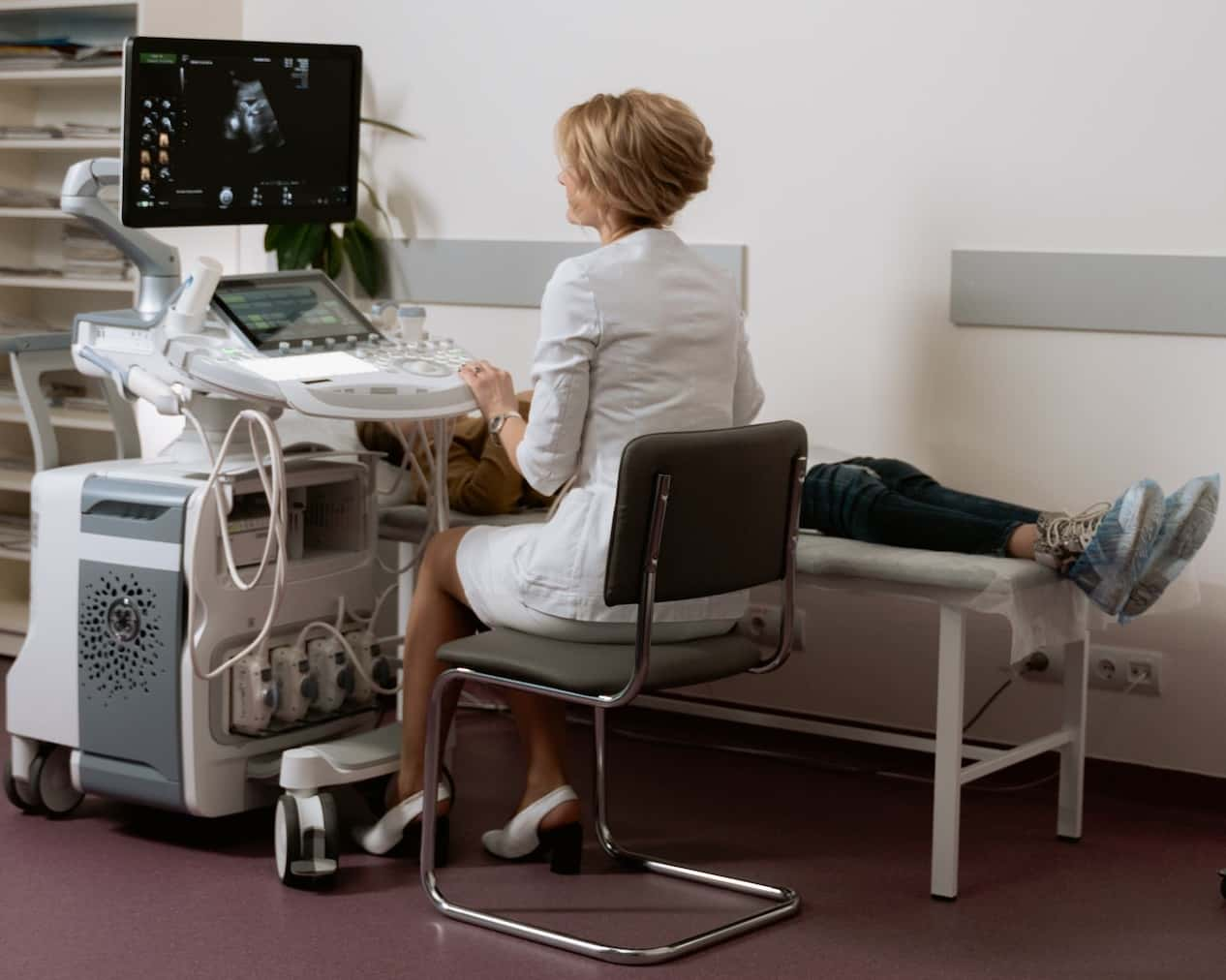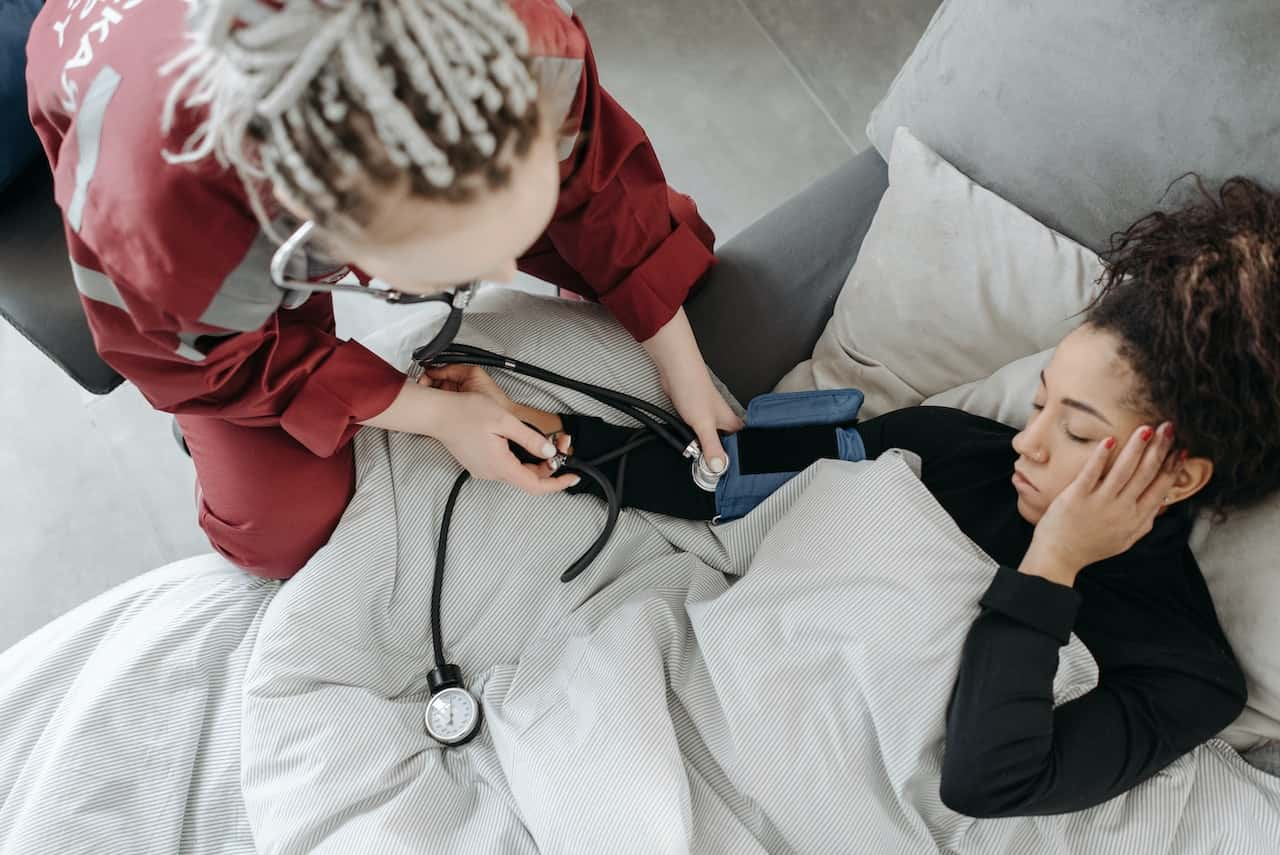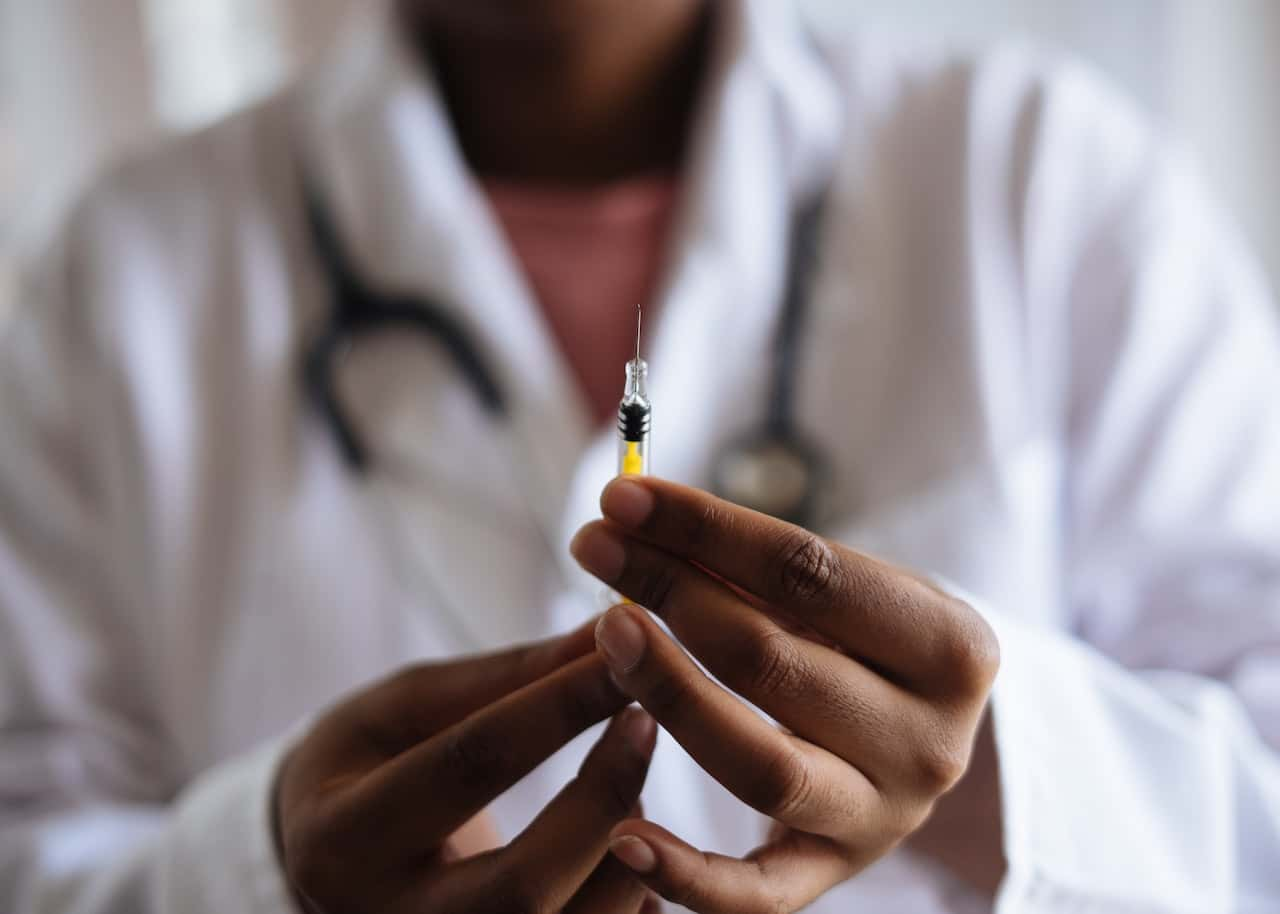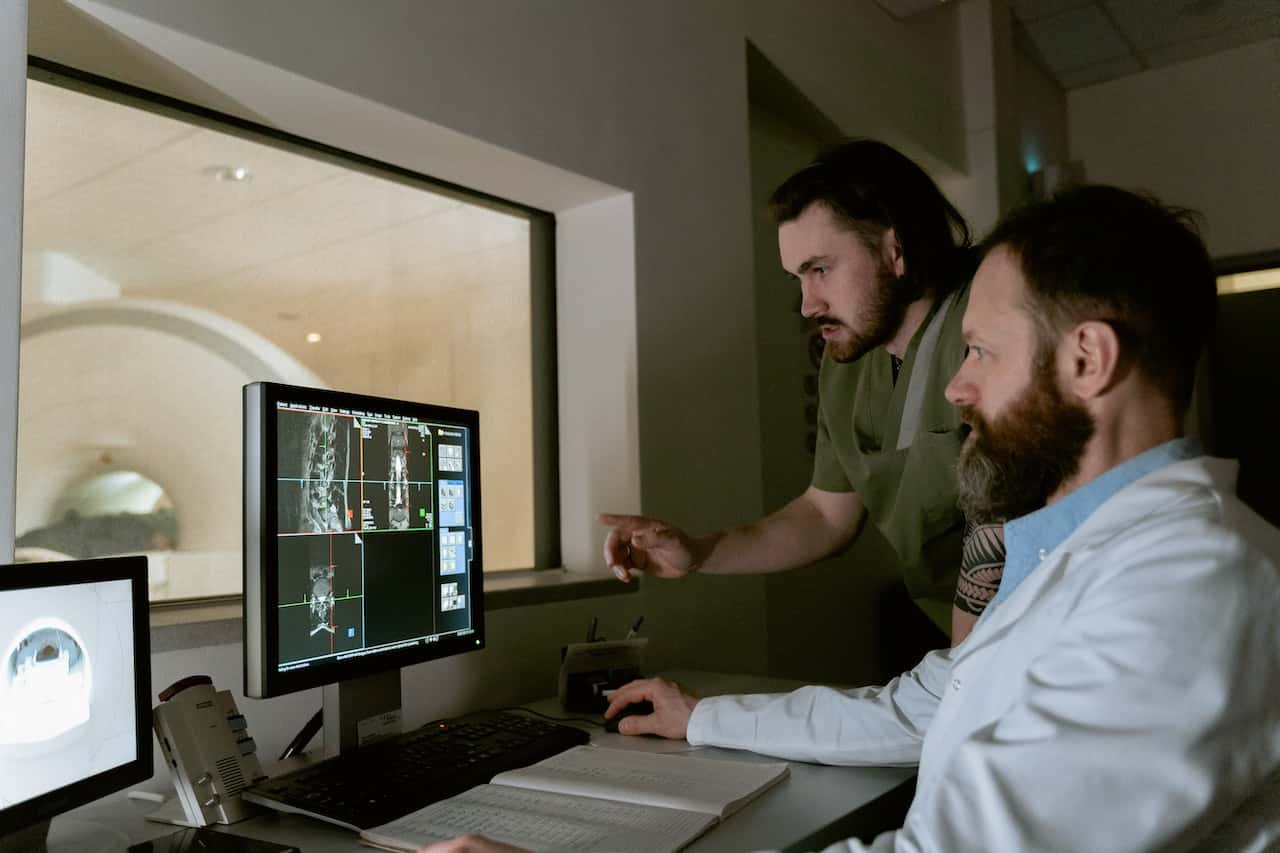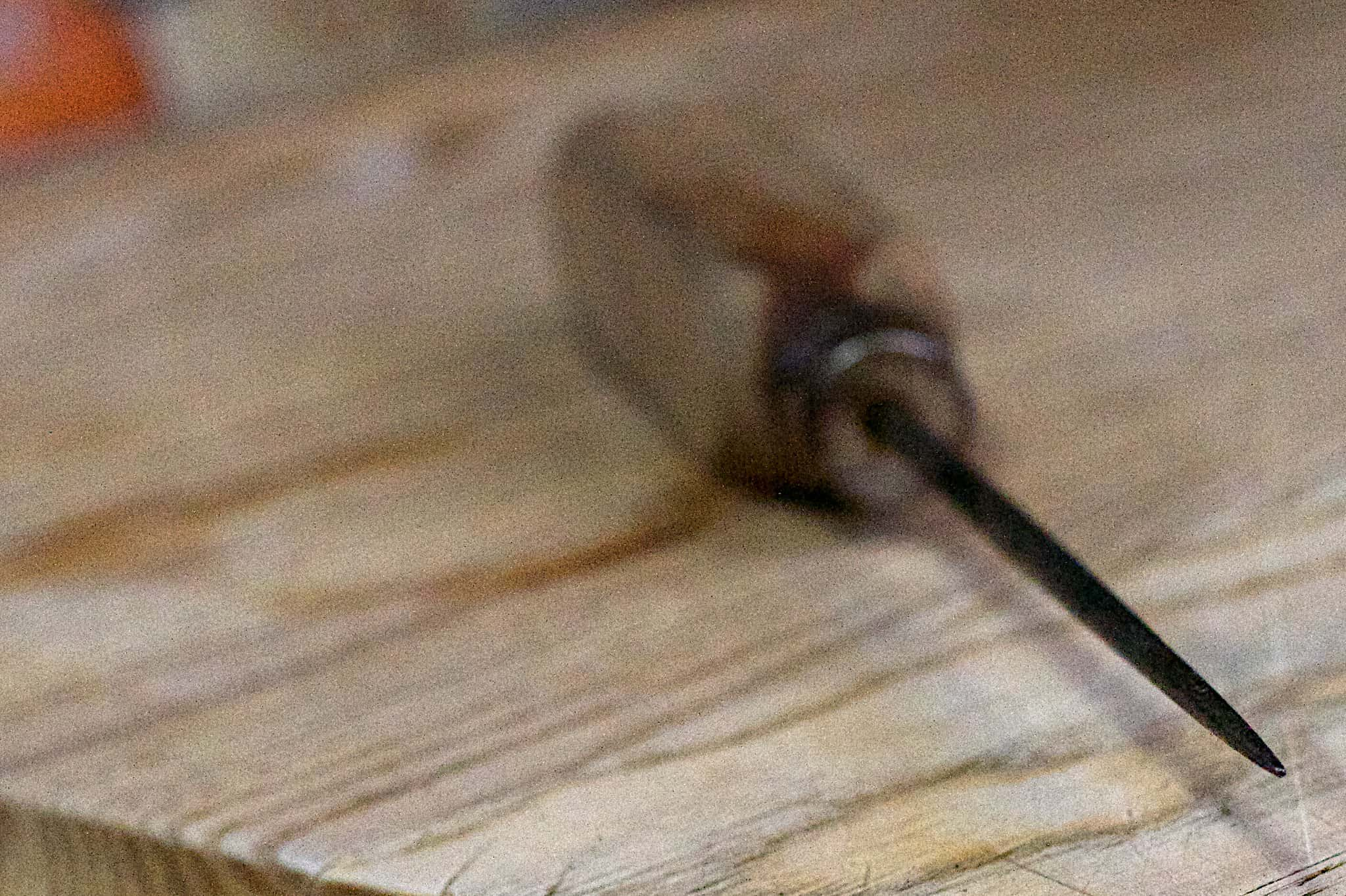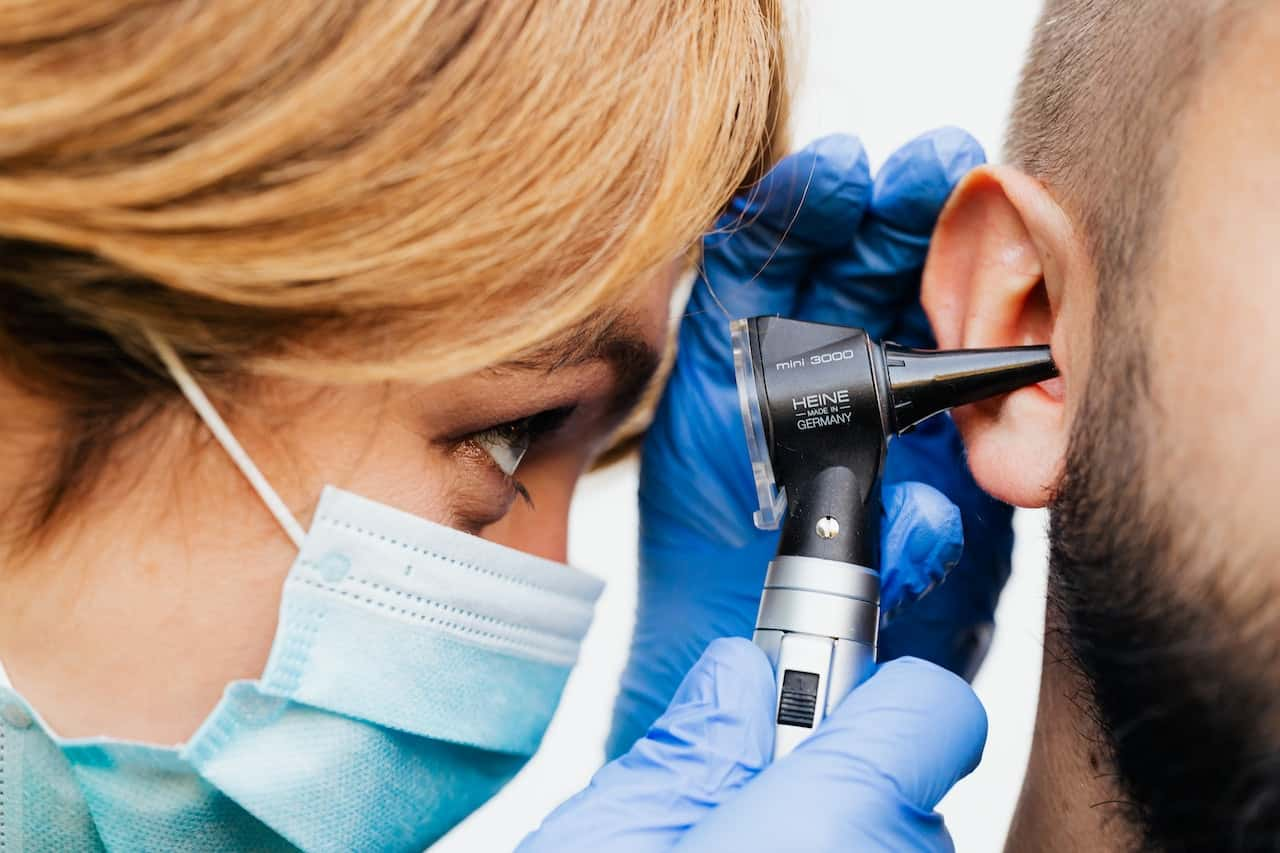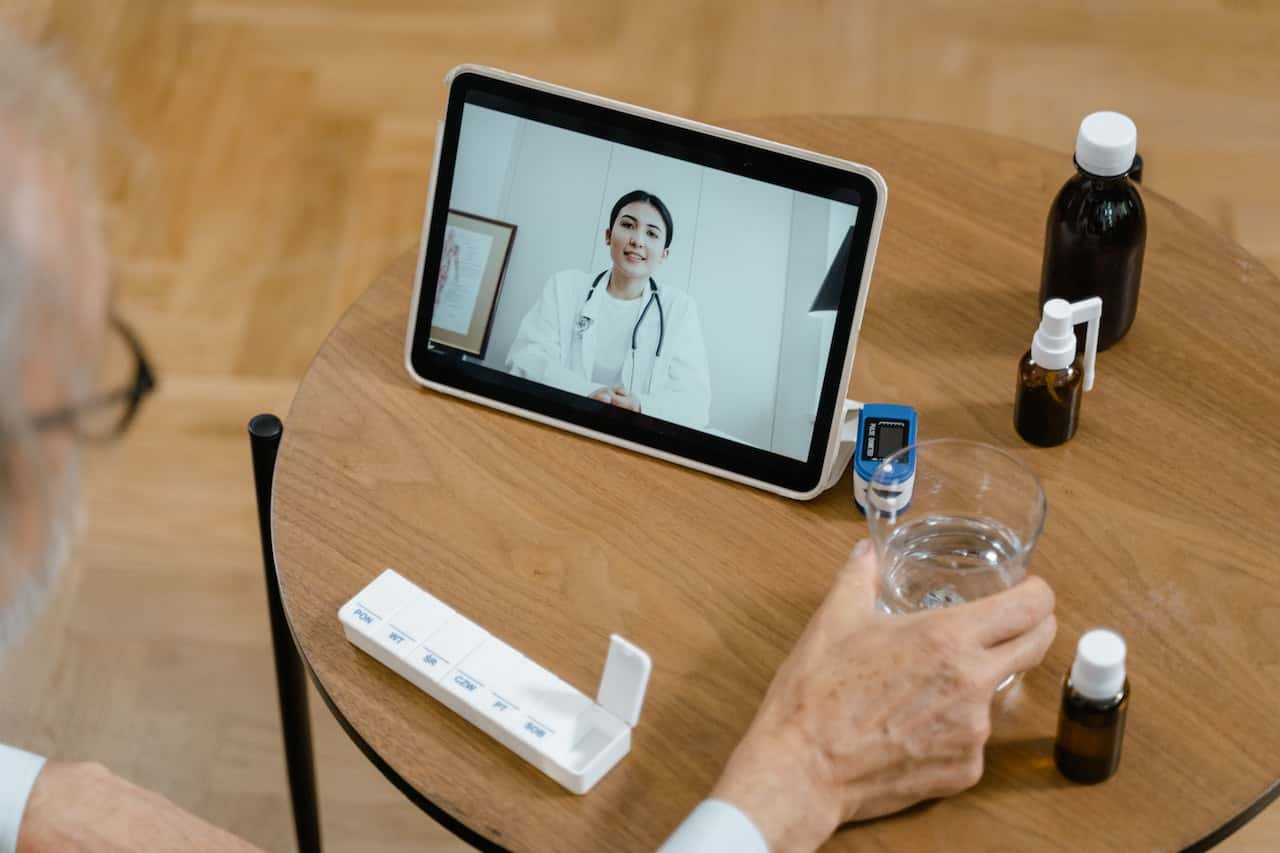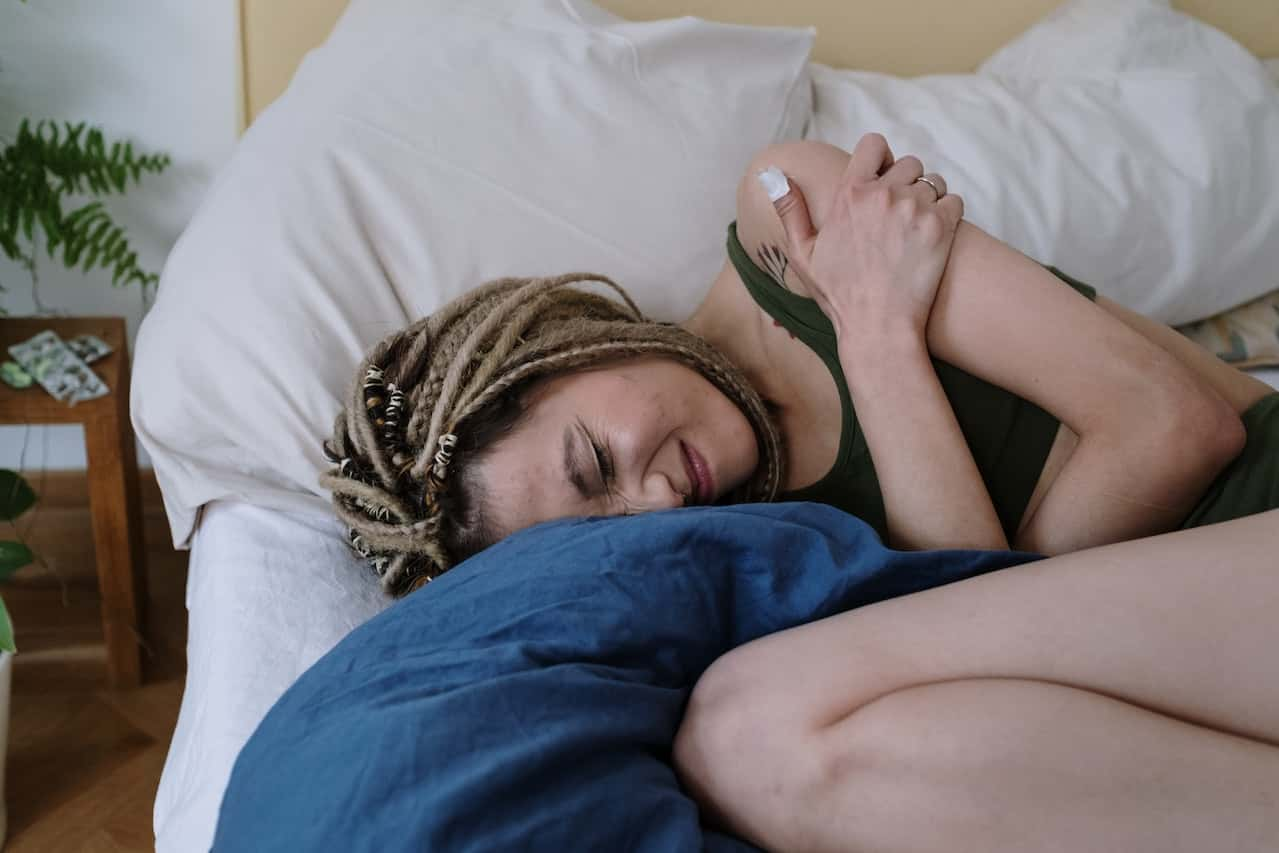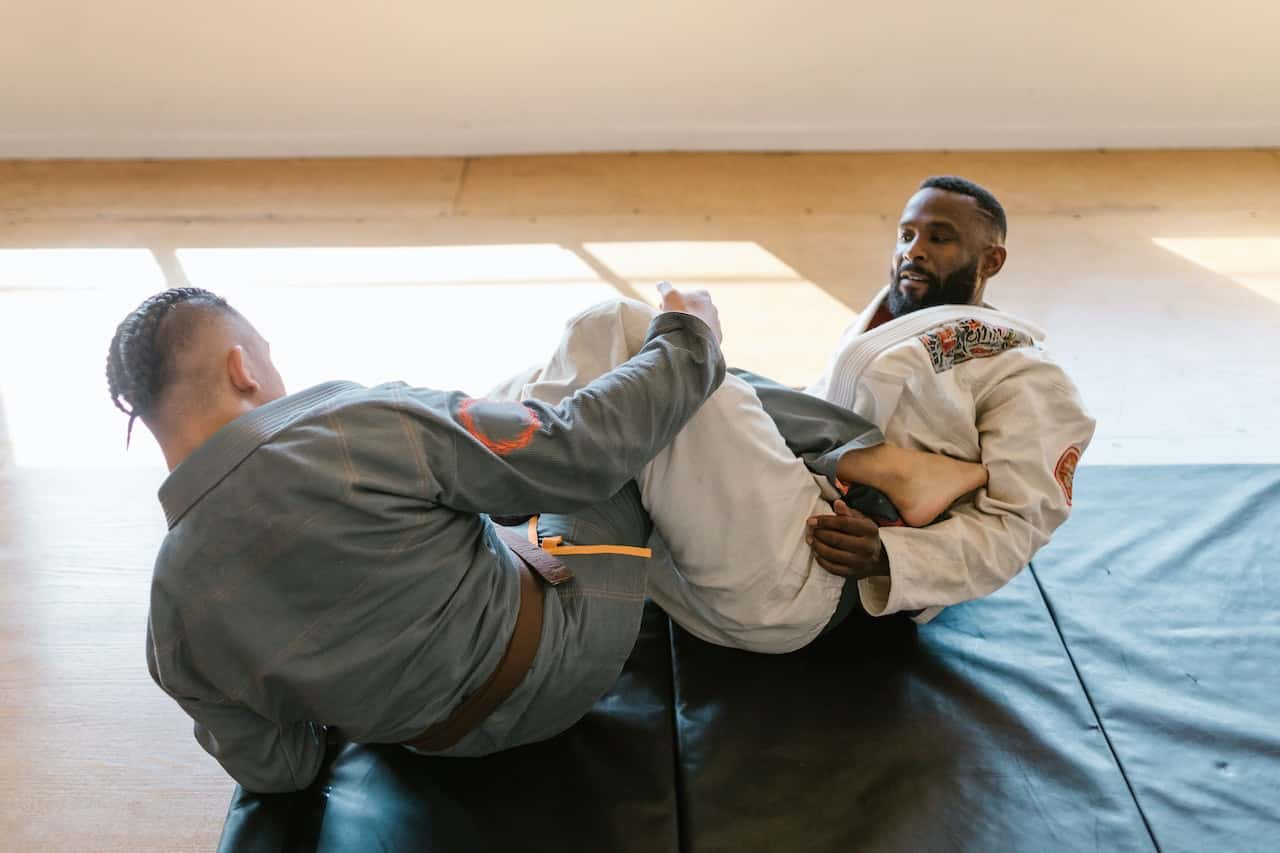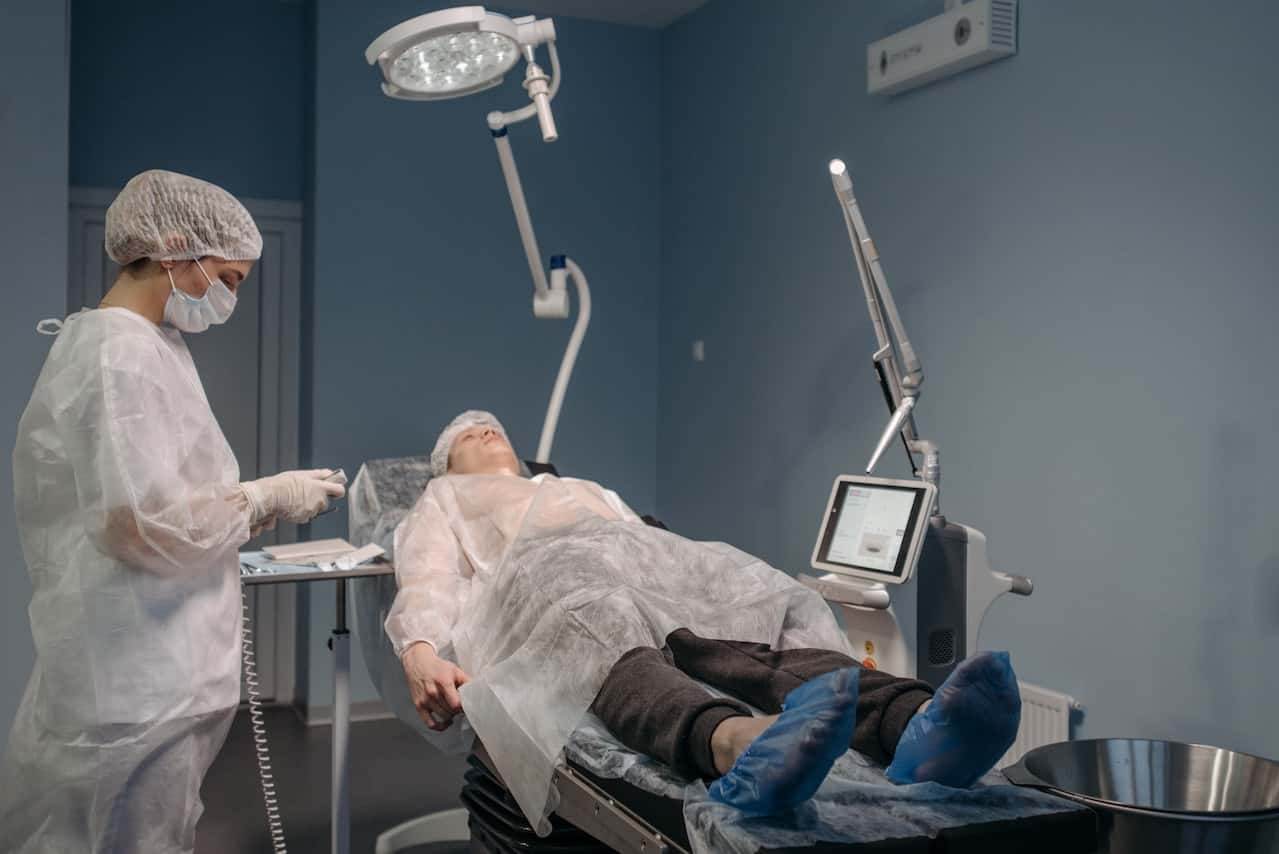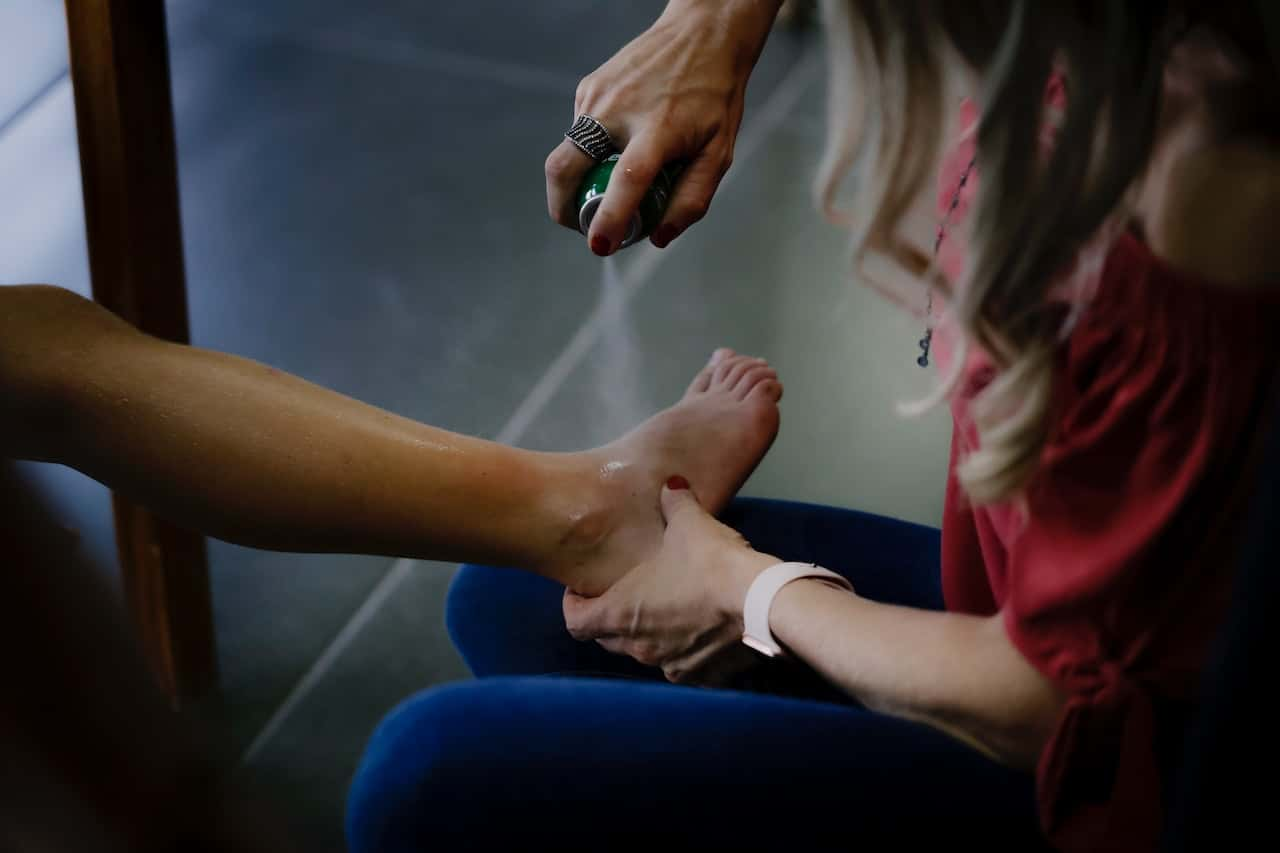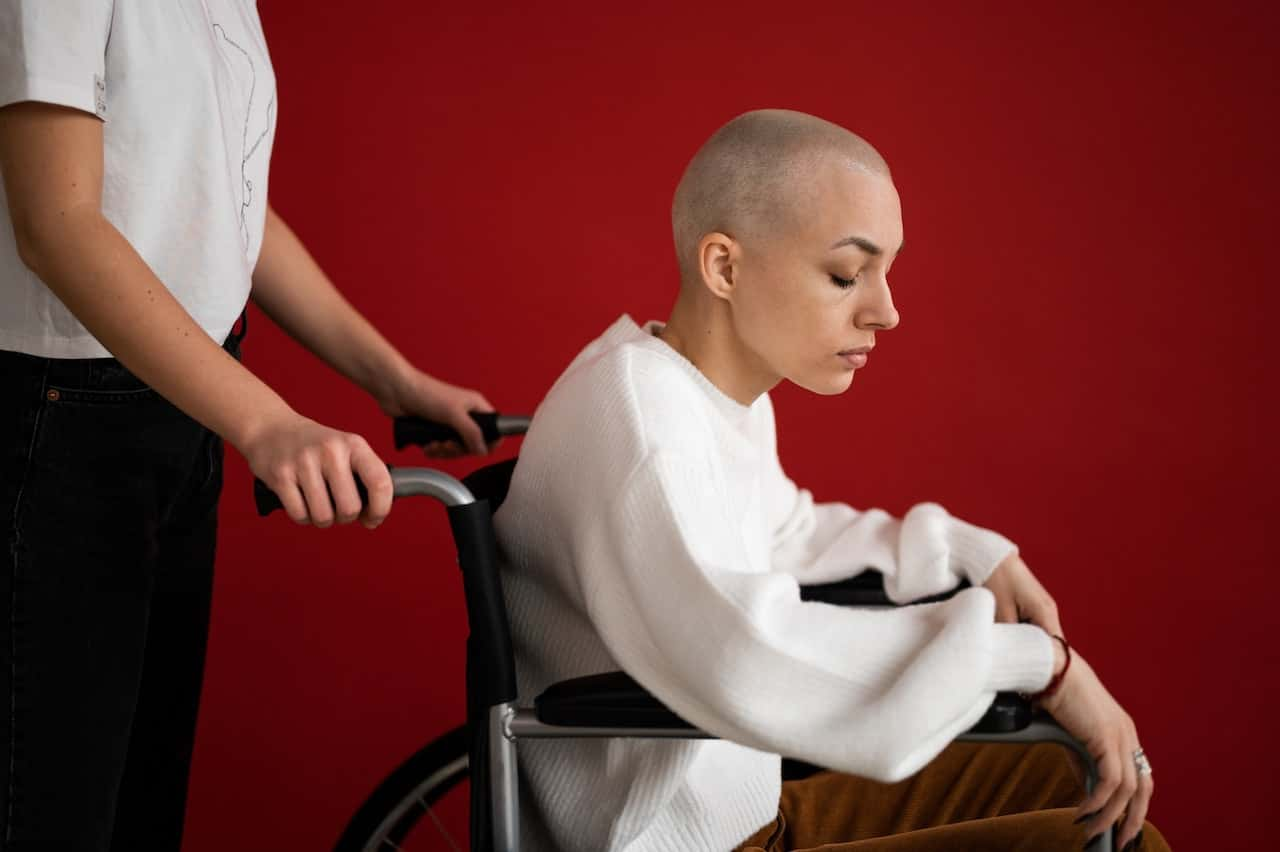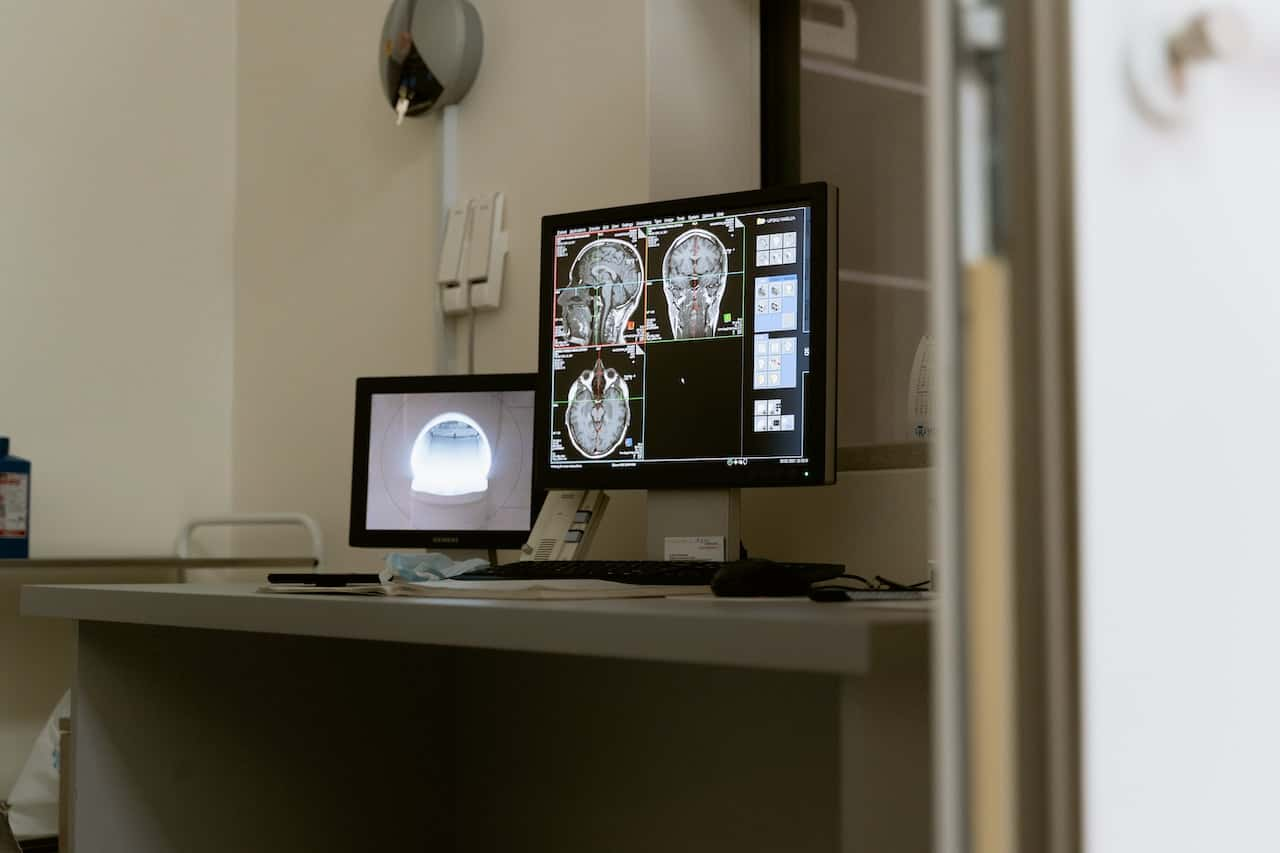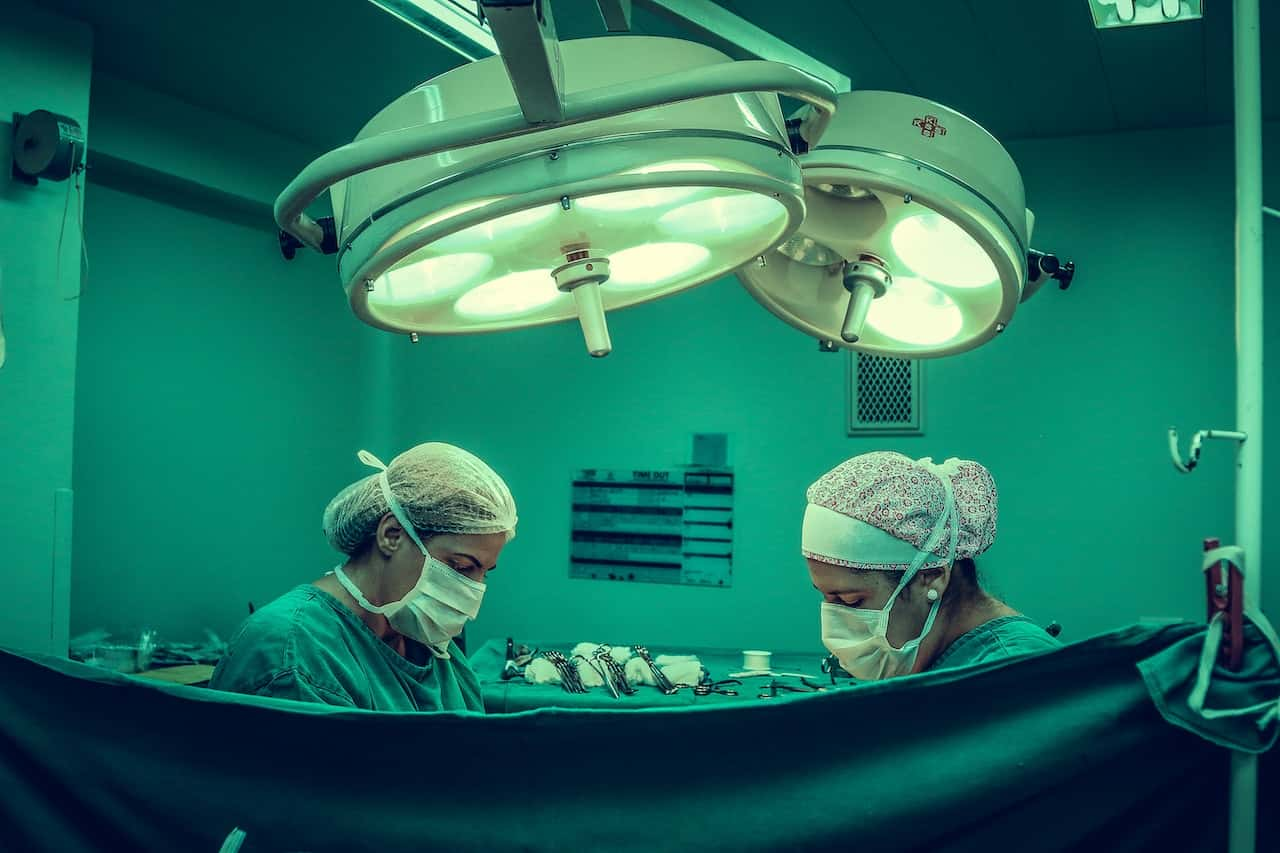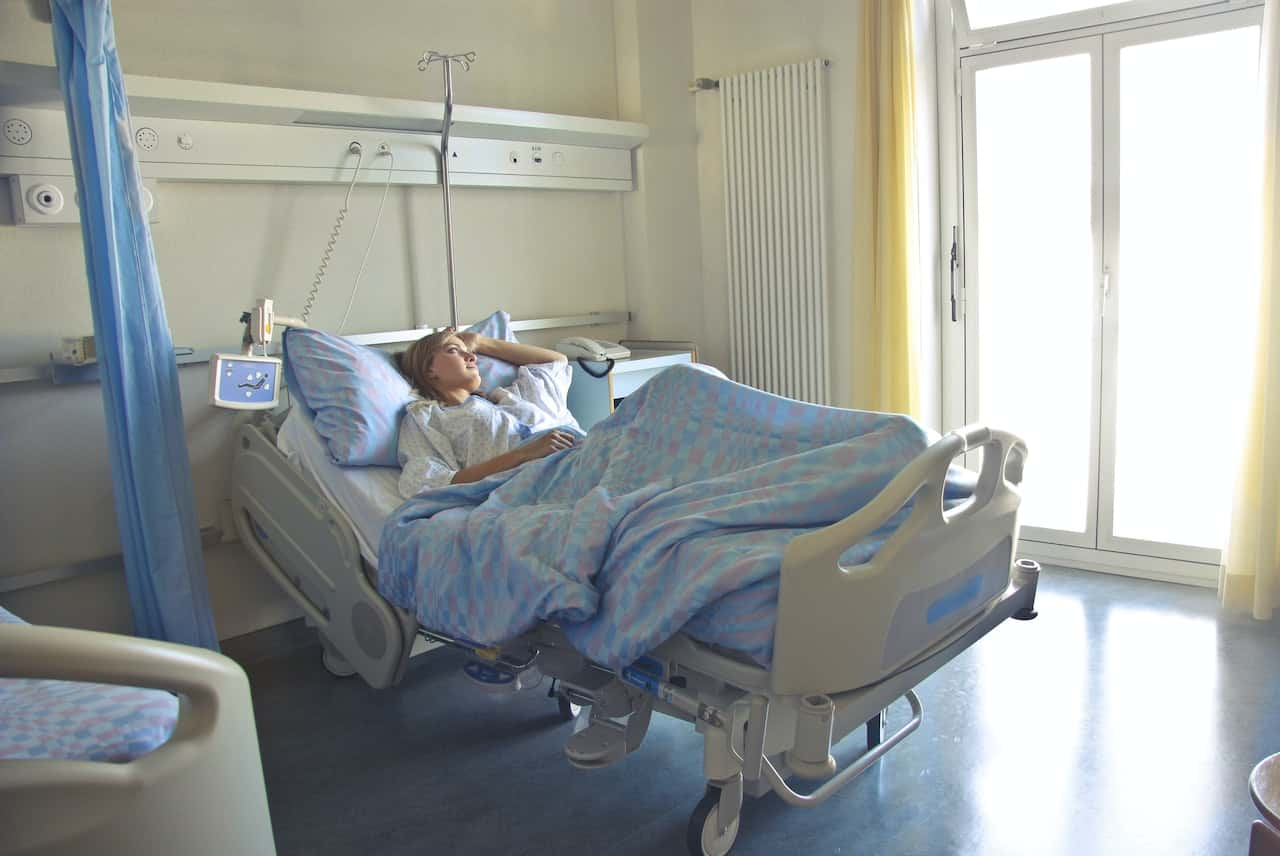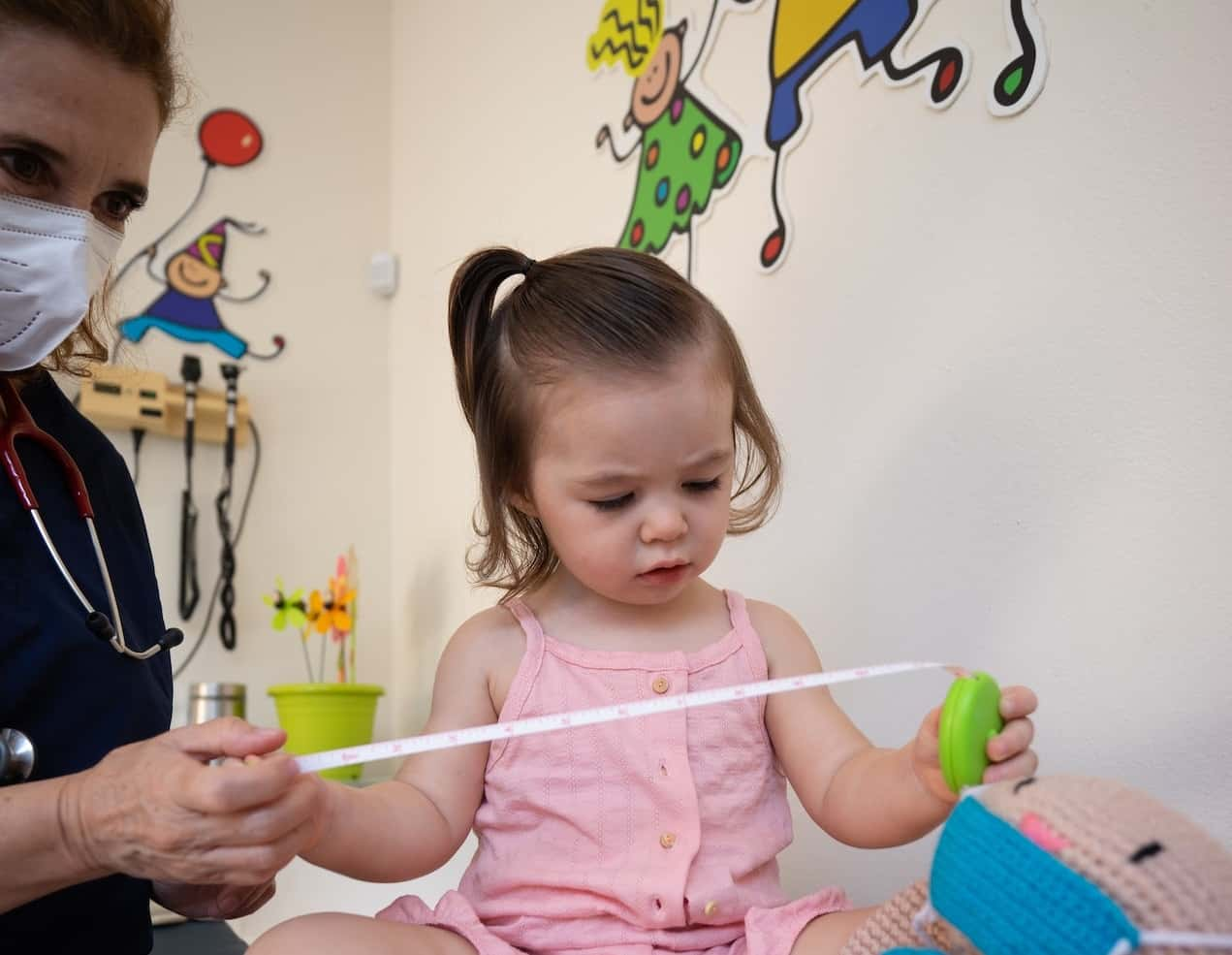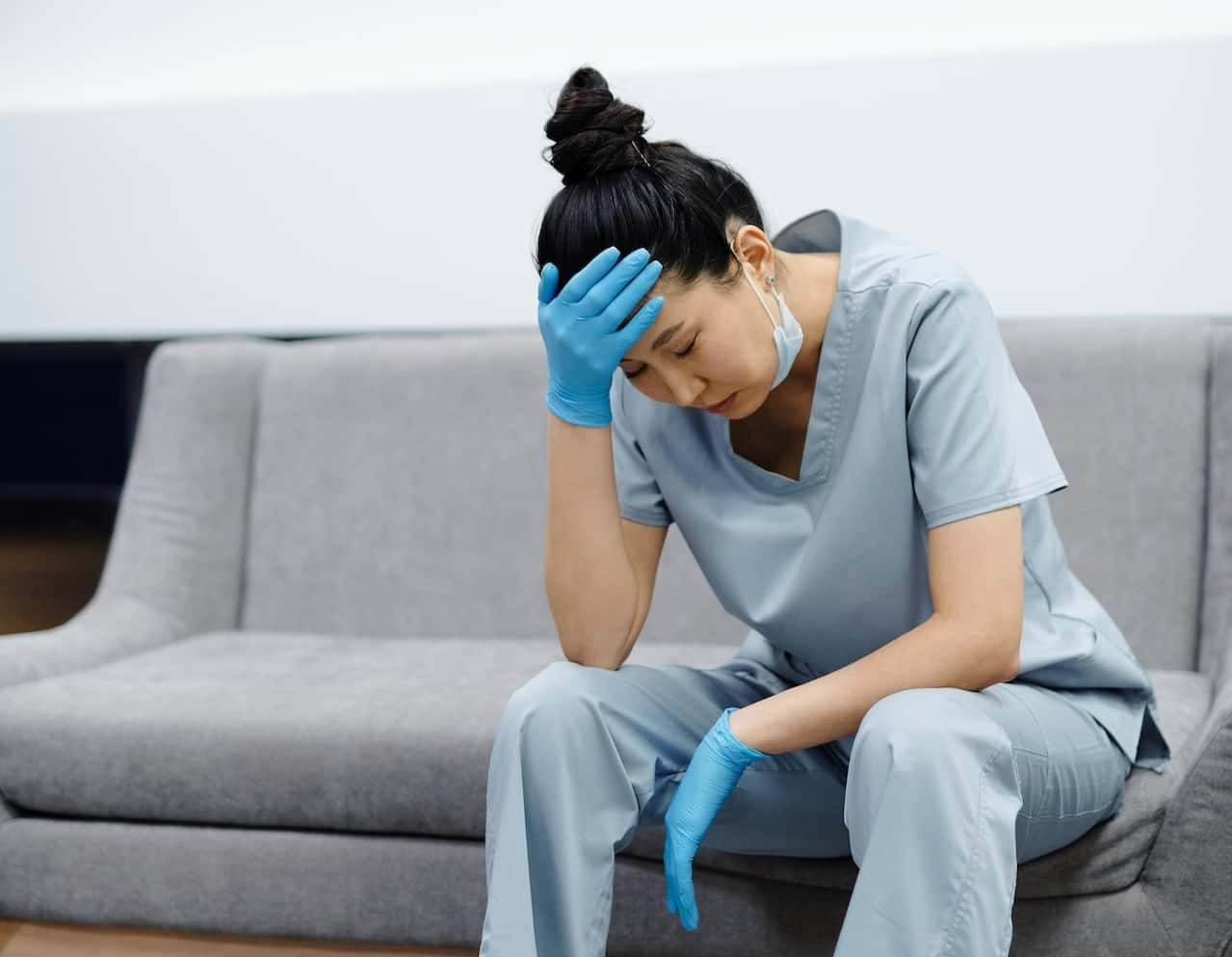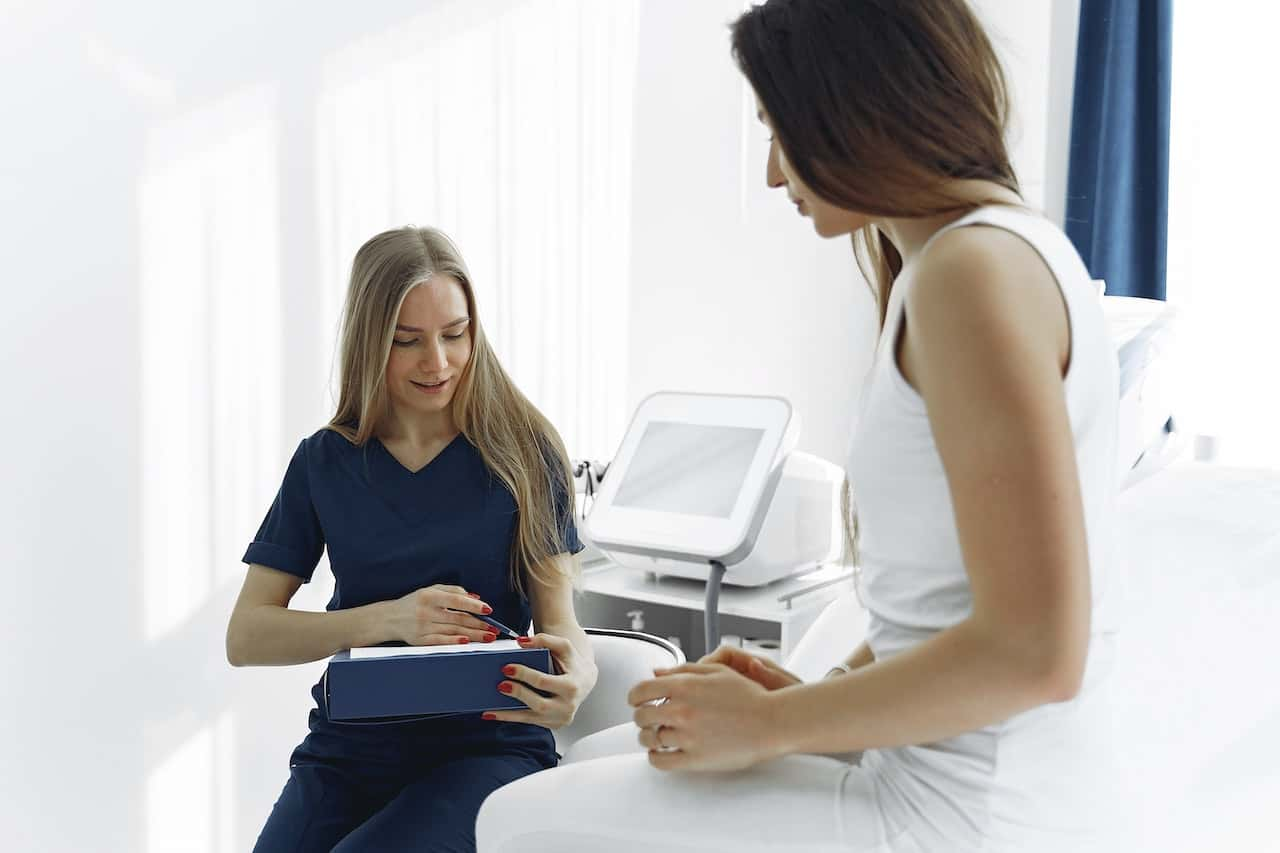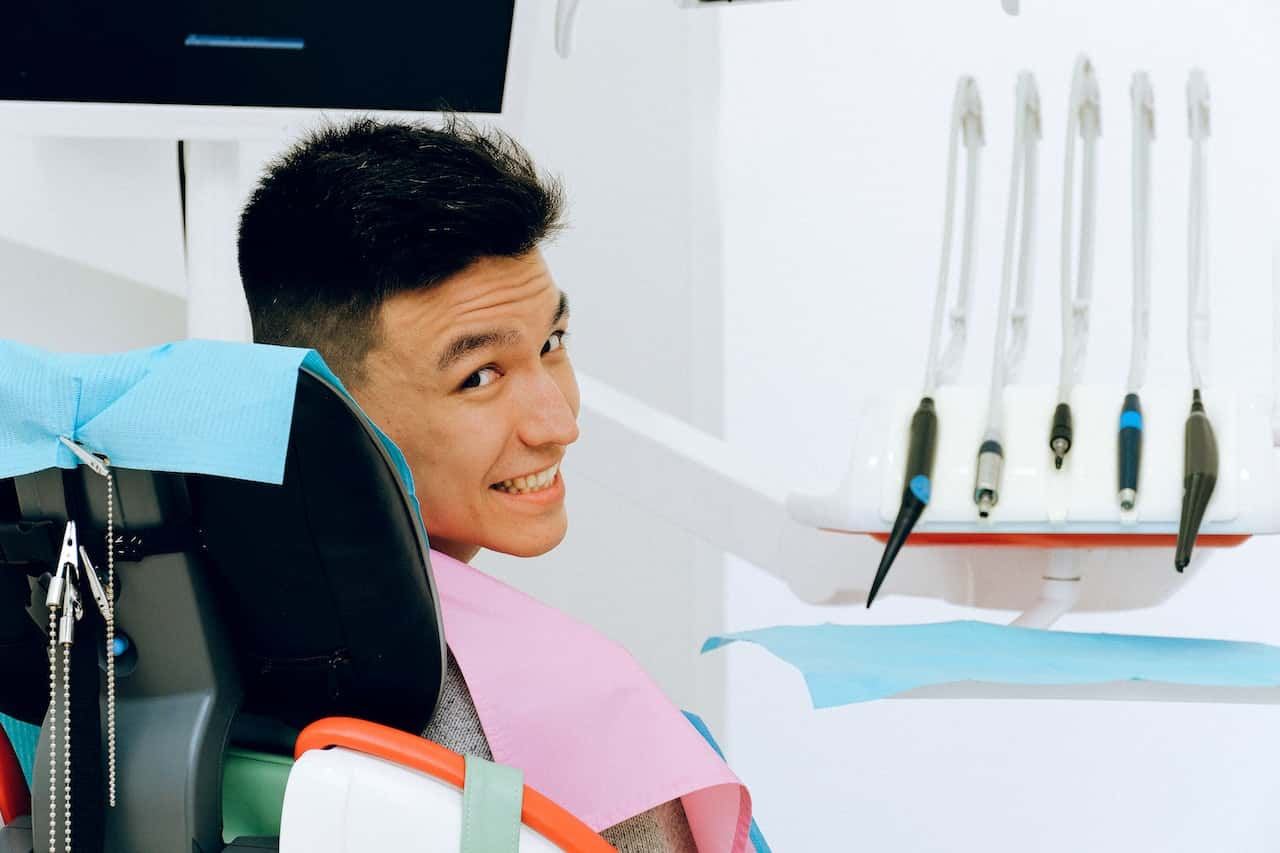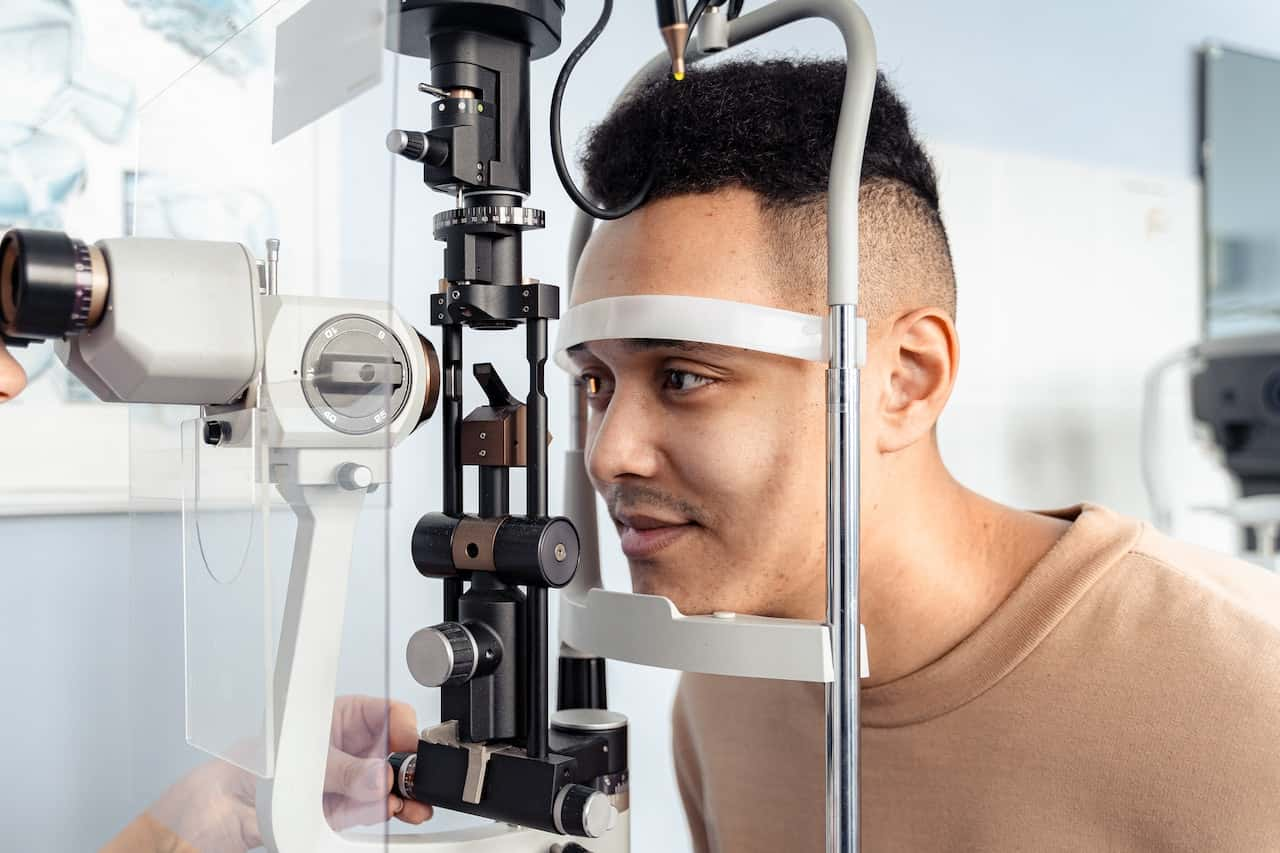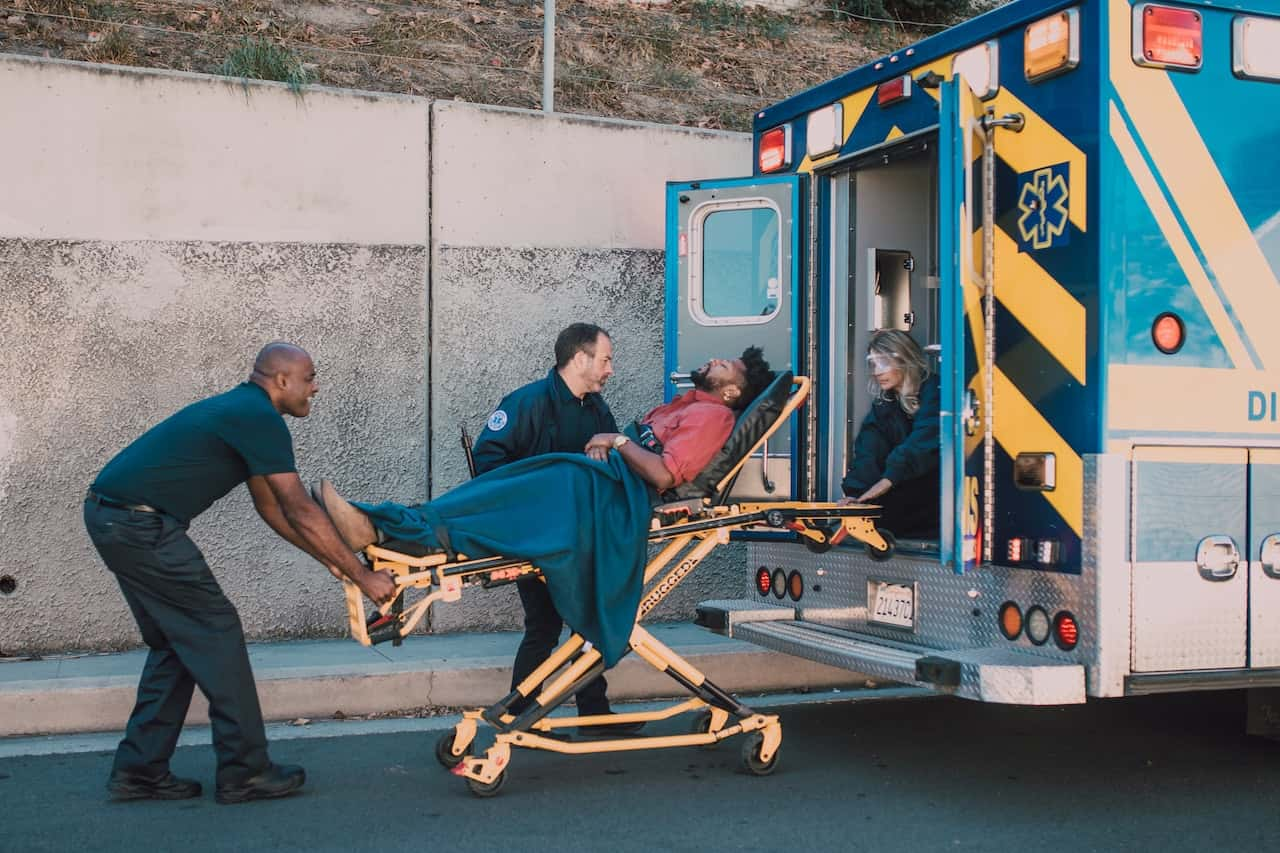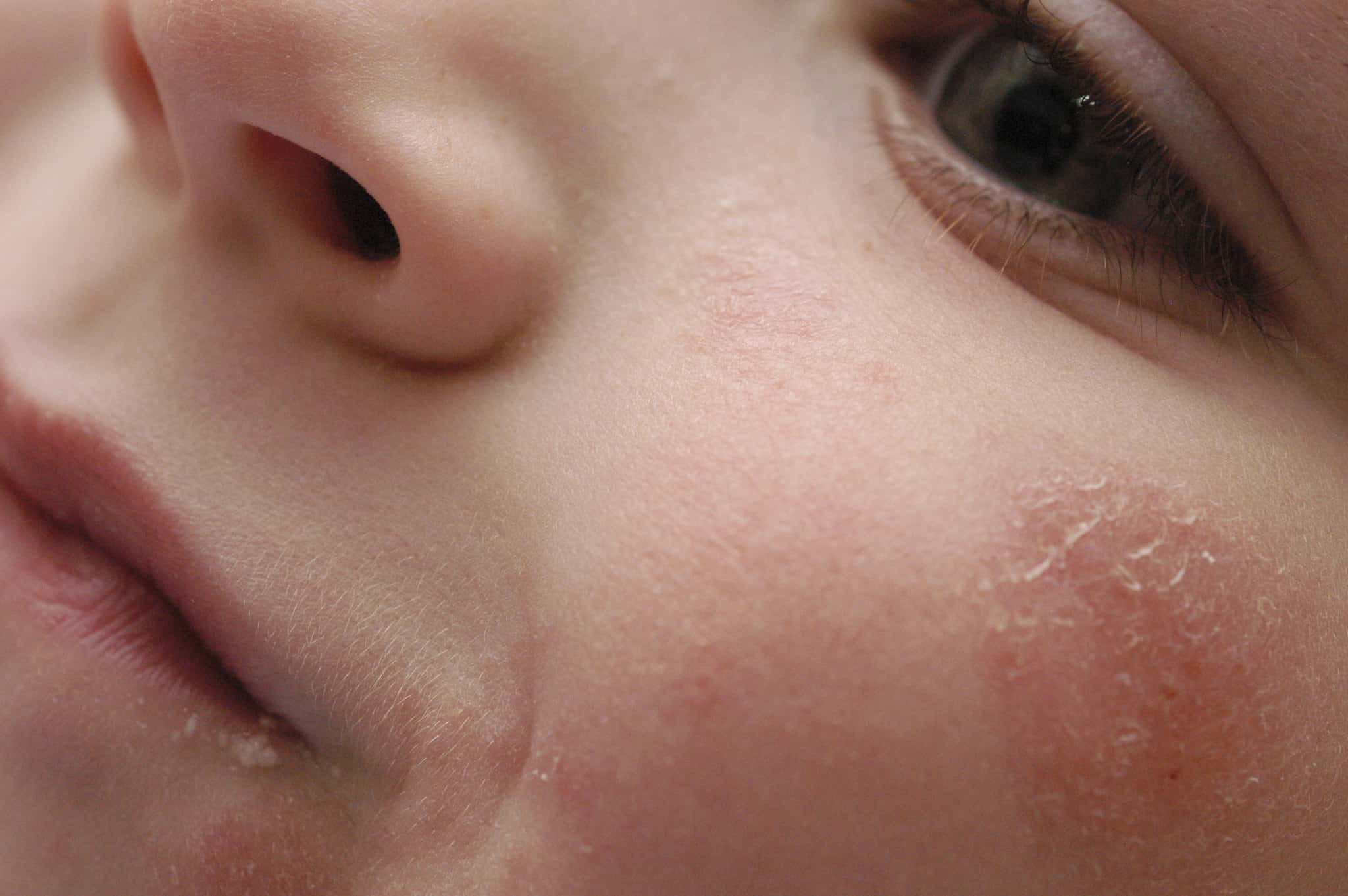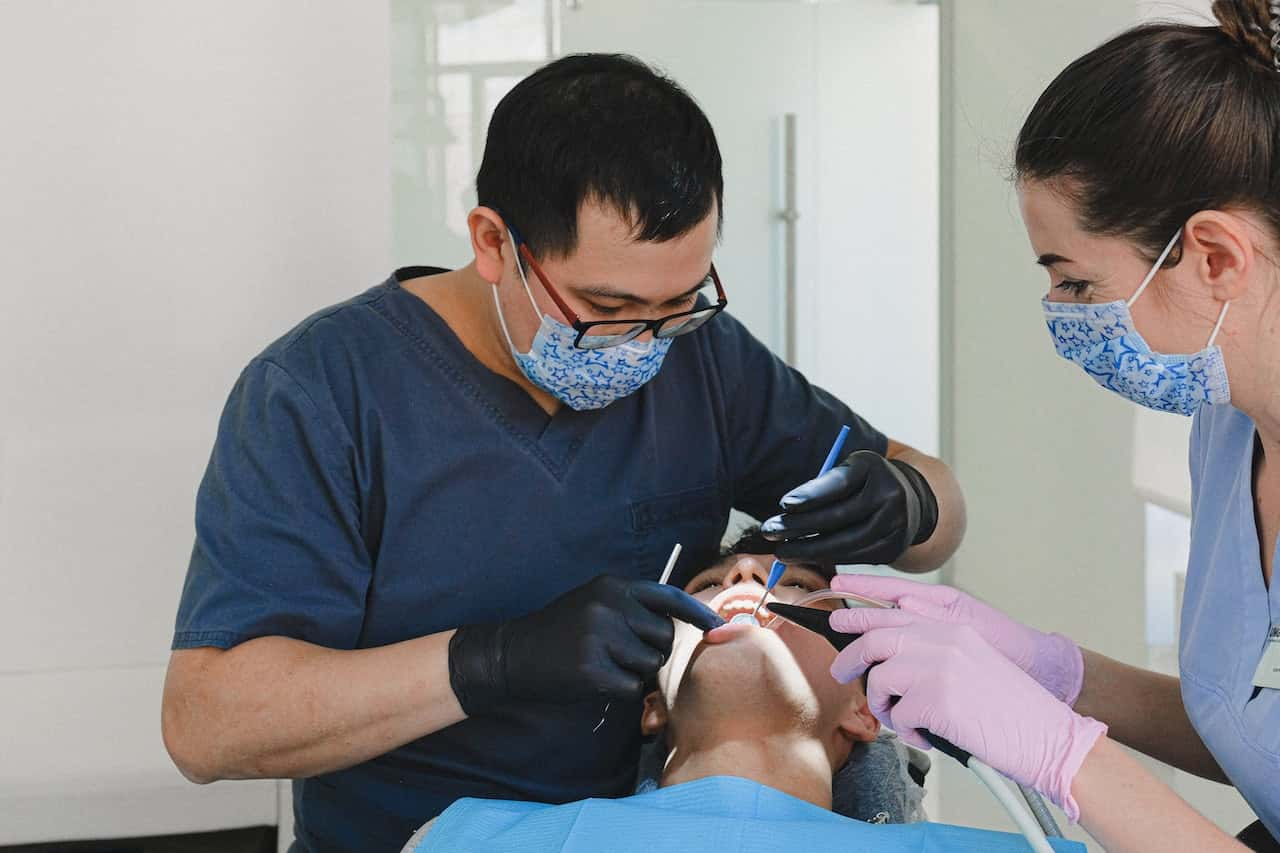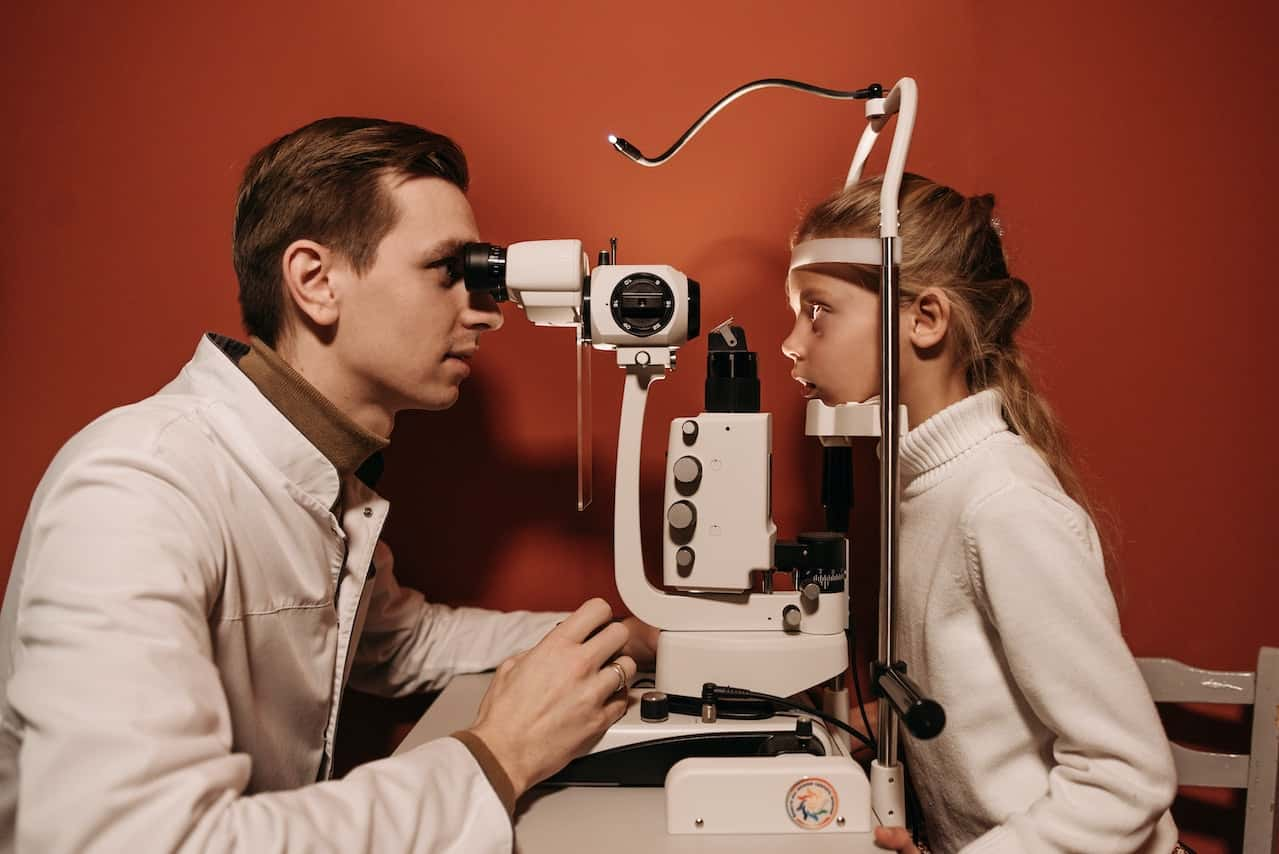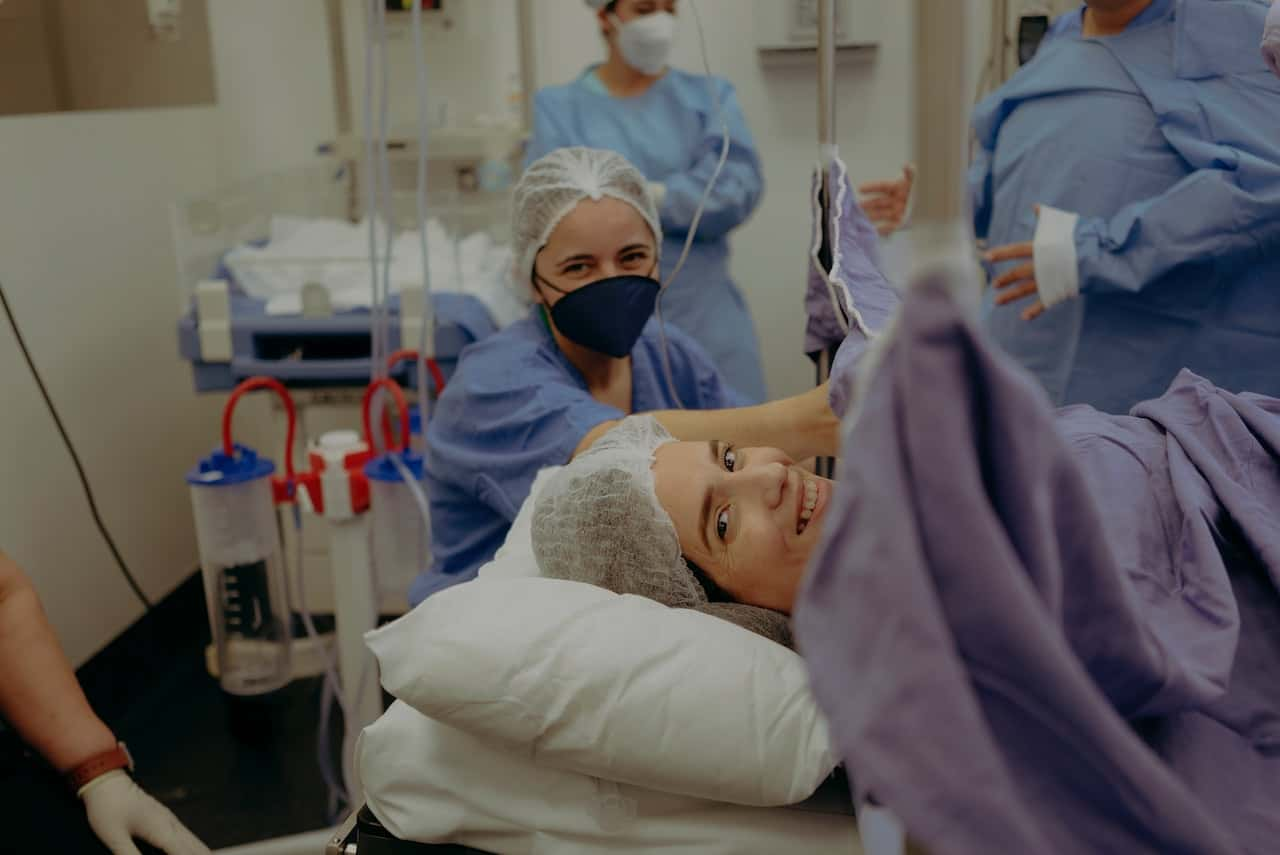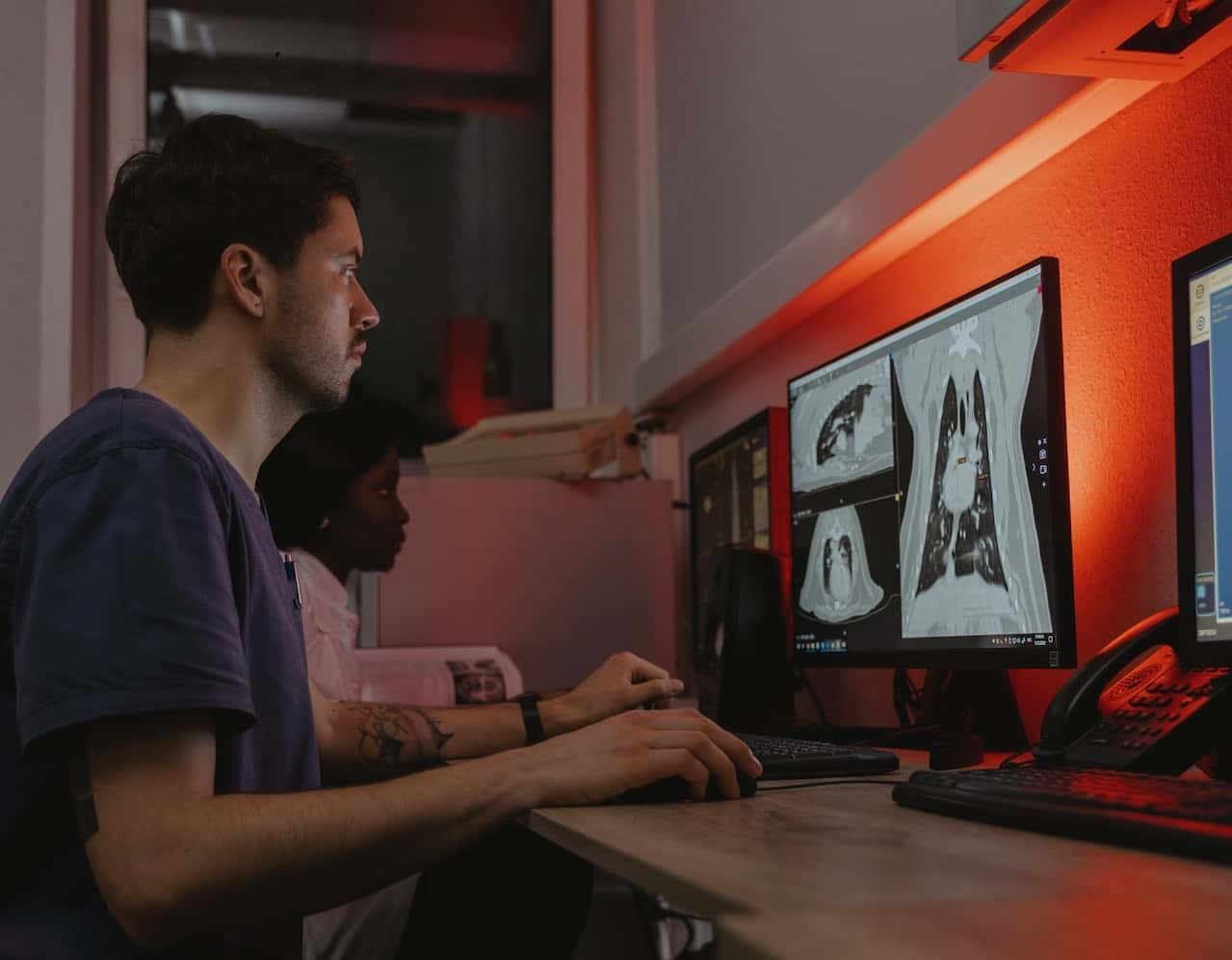PSA: This collection of gut-wrenching, there-but-for-the-grace-of-God-go-I accounts of medical misdiagnoses and mishaps is not for the faint of heart.
1. Malpractice Much?
When my sweet little girl was just three months old, she experienced a drastic change. From being a perfectly healthy infant, she began throwing up frequently, and it wasn't just spit-ups, but projectile vomiting. Also, she seemed to lose her normal liveliness and would sometimes behave weirdly, almost as if she was dazed or not wholly present.
Each time I reached out to her pediatrician with these concerns, he offered a new and peculiar explanation—he suggested maybe it's reflux, allergies, and so forth. Frustrated, I finally insisted that he conduct a full series of tests on her. He assured me that he had done so.
Interestingly, he observed that her head was abnormally enlarged but quickly brushed it off. He reasoned that the ultrasound didn't show anything concerning and sent us back home with yet another prescription for reflux medicine. But then, my worst nightmare happened just two weeks later—my darling daughter had a seizure…
In a state of panic, I hurriedly took her to a nearby hospital where they performed a CT scan. The results? There was swelling in her brain. They'd missed seeing a brain bleed by a mere inch and a half during the ultrasound. Later, I was shocked to discover that the same doctor had manipulated my daughter's records post-diagnosis, which gave the false impression that he was aware of the problem right from the onset.
2. Wrong On SO Many Levels
When I mentioned to the anesthesiologist that the anaesthetic was unbearably painful, he dismissed my opinion as if I were overreacting, which eventually led to the freezing of my lungs. He ended up not correctly inserting the IV into my vein, causing me to miss out on receiving the right dose of the anaesthetic. Throughout the operation, I was in a weird state of being alert and experiencing an intense feeling of suffocating, pretty much like a fish out of water.
The last thing that stands vivid in my memory before conceding to the pain and losing consciousness was the surgeon's remark to the anesthesiologist that I "won't have any memory of this." He couldn't have been more wrong.
3. Hello, Dr. Dad
During my time working in pediatric radiology, a dad once walked in with his little five-year-old. The poor boy had difficulty eating and was often sick, so he was quite thin. Reviewing his case, I found a record of frequent hospital visits over the past six months with this persistent problem, yet no diagnosis had been made.
His dad, however, had a hunch that his son might have swallowed something. But since the symptoms didn't clearly point to that, it was never pursued. When they met me, they must have decided to explore this hunch, as they requested a functional fluoroscopy. The first image I took totally astounded me...
I saw a button battery lodged in the little guy's esophagus. His dad, overwhelmed by finally finding an answer to his son's health struggles, was brought to tears. Later, I discovered in follow-up notes that the battery was taken out the same day endoscopically, and it had caused significant inflammation in his esophagus due to leakage of battery acid.
It's quite astonishing to think that this dad had suspected something like this right from the beginning, but it took half a year before his hunch was properly investigated. This experience has taught me a lot about the risks of underestimating someone. I continuously remind myself to view all my patients equally, even in my own thoughts.
4. Not-So-Sweet Dreams
When I was just 10 years old, my mom started running me to doctors because I would have horrifying nightmares, splitting headaches, achy muscles, and sudden fluctuations in my weight. We visited numerous healthcare centers and went to out-of-hours hospitals countless times—but my mystery ailment remained unsolved.
Adding insult to injury, people suggested that I was merely pretending to be sick to skip school or even that I was battling with addiction—imagine that, at 10 years of age! Time marched on, and by the time I was 19, I found myself living with my first boyfriend.
He began to accompany me to the doctor's office as he was convinced I was dying during my sleep. Despite numerous tests being conducted, all came back normal. Frustrated and desperate, my boyfriend took to calling an ambulance each time I seemed to lose consciousness.
It wasn't until I was 24 that the puzzle was cracked. The diagnosis: nocturnal epilepsy. I had been living with and suffering from these severe, full-body seizures during my sleep my entire life.
5. Fully Loaded
One evening, we treated a slightly tipsy patient in the emergency room who had a cut on her eyebrow. She shared with the doctor that her boyfriend had allegedly shot a gun at her, but we considered it might be an overstatement influenced by her state of mind.
She looked like she’d been hit hard in the face, so we stitched her wound and assumed that was all. Then we conducted an X-ray to look for potential fractures, and that's when we had a reality check.
Clearly visible in the X-ray was a real 22 bullet. It had struck her eye socket and oddly ricocheted off, landing just outside her skull under the skin. When you knew its location, you could even feel the bullet above her ear.
6. Mother Really Does Know Best
I once had a patient, a man in his 30s who was having trouble reading. He was a shy guy, who unusually brought his mom to the visit. He told me he worked at a library and he would often get the words mixed up when he was reading. This was his only issue.
I ran him through a detailed neurological test but couldn't find anything wrong. I even asked him to read from a magazine at varying speed, and he executed it flawlessly. I told him things seemed good and suggested conducting some lab tests. Honestly, I just thought he was a bit of a peculiar person. He agreed to the tests, but his mom was insistent on getting a head scan.
Despite her pushiness, I agreed to order a CT scan. His lab results were available before the scan and revealed that he was severely deficient in Vitamin D. So, I recommended treating this first and postponing the CT scan. However, his mom was adamant. Not only she did not want the scan to be canceled, she also requested an MRI and she wanted it done urgently.
Eventually, I tired from trying to calm her fears, so I just ordered the tests she wanted. Imagine my shock when the reports came in—her son had the largest glioblastoma (a type of aggressive brain tumor) I've ever seen. Kudos to his mom!
7. Now There’s A Plot Twist
I'm a psychiatrist, and during my training years, I worked at a short-stay unit mainly for severe mental health problems. One of my patients was a woman who'd been with us for a while, believing the Russian mafia was after her. She imagined it all, voices, images and so on.
Her family assured us that no one was actually pursuing her and that these were all figments of her imagination. We'd been treating her with medication for a while and she'd made great progress. It got to a point where she no longer felt threatened or hunted, and it seemed like her recovery was on track—well, that's what we believed.
As per procedure, we reached out to her family so she could start spending the weekends at home as she tackled the last phases of her recovery. However, during her first weekend out of the hospital, she really was abducted by the Russian mob, forced into human trafficking to pay off a massive debt that was news to her family.
But the story has a silver lining. She was swiftly found and rescued, thanks to our previously shared suspicions about her 'delusions' with the police, who acted promptly when she vanished. Justice was served with arrests made, and even more importantly, a number of other women were rescued.
In the end, everything worked out well.
8. Can You Feel The Rage Tonight?
Between my 14th and 16th week of pregnancy, I started feeling extremely bloated, as if I had a basketball in my belly. This led to breathing difficulties, and I couldn't even walk a block without pausing to rest because of the heavy sensation I was experiencing due to this "basketball" feeling.
I even had to sleep propped up on the sofa as I found breathing problematic when lying flat. During this period, I noticed other odd symptoms which didn't seem normal. I brought up all these issues with my doctor—not once but three times—yet each time, she dismissed my concerns.
Even when I questioned her certainty, she was dismissive. That should've been my first warning: If I didn't trust my doctor, I should have immediately sought help elsewhere. At 23 weeks into my pregnancy, I started losing fluid and was rushed to the hospital.
The hospital doctors were shocked to find that my doctor had missed a serious complication: twin-to-twin transfusion syndrome. I was immediately airlifted to another hospital for surgery, but it was already too late. My twins were born alive, but we tragically lost them about an hour later.
Afterwards, I had to undergo another surgery and was put in ICU since my condition wasn’t good. In retrospect, my doctor made a huge mistake.
9. Those “Dramatic” Teens
I work as a paramedic, and I recall responding to an emergency involving a 16-year-old girl. She had inexplicably become unresponsive while watching a movie with her boyfriend on their sofa. She was staring blankly into space; her mind seemed to be elsewhere, though she was physically present.
The room felt quite odd too, filled with an unusual tension. The girl's boyfriend kept giving her peculiar glances, and her mother and aunt were fervently praying for her. Interestingly, all her vital signs seemed to be perfectly normal. I couldn't shake the feeling that perhaps, she was acting out to grab some attention, as that tends to be the case with many similar situations that I've responded to. As we were transporting her to the hospital, I decided to try something different.
I openly told her, "I believe you might be pretending. Please stop and have a truthful conversation with me so we can determine how best to assist you." Following this, her heart rate quickened and her blood pressure spiked. I thought to myself, "Aha, I've caught her." I decided to openly share my theory with her mom. While she had some doubts initially, she seemed to grasp where I was coming from.
However, a week later, her mom phoned to tell us they had identified a brain tumor. This development was a potent reminder of the need to remain humble. It generally ingrained in me the importance of not letting personal prejudices interfere with making key clinical decisions.

Sign up to our newsletter.
History’s most fascinating stories and darkest secrets, delivered to your inbox daily. Making distraction rewarding since 2017.
10. Can’t Be Too Careful
This incident occurred when my baby girl was due for her first vaccines. As we waited for the doctor, I went through a brochure they'd handed to me. It described all the vaccines that kids usually receive and when they should ideally get them. After a little while, the doctor popped in and placed a vial on the counter.
As he began preparing the needle, I took a glance at the vial and was struck by a sudden uneasy feeling. The label didn't match the information in the brochure. I informed him about it, but he nonchalantly dismissed my concern. Perhaps he mistook me for an anti-vaxxer or just thought I was an anxious, uninformed mother; I really don't know.
The situation escalated to the point where I literally had to intervene to prevent him from injecting my little one with the wrong vaccine. I practically shoved the brochure at him to prove it. He appeared really miffed at me, but on checking, it turned out that he had made a mistake. For some odd reason, he had my daughter's birth date incorrect in his records.
After realising his error, he proceeded to administer the right vaccine. Nonetheless, we decided it was in the best interest of our child's health to switch doctors after that incident.
11. Mind Blown
Someone came into our emergency room for the sixth time in half a year, each time showing the same worrisome symptoms: distressing seizures and increasingly troubling brain-related signs. Despite a brain scan four months prior showing no abnormalities, their condition hadn't improved.
To help them cope, we'd referred them to a specialist known as a "functional neurologist", believing their symptoms were mostly psychological, not physical. We made this judgement call based on several factors: their first episode occurred during a stressful phone call, their previous MRI showed nothing unusual, and a neurologist hadn't identified any abnormalities.
But during their latest visit, they arrived in a wheelchair, unable to stand. This made one of our leading ER doctors order a new scan. The patient was on my roster that day. As I walked in, I was expecting to see a "deeply neurotic patient who imagined their symptoms." Then, as I opened their latest brain scan on my computer, I could barely believe what was in front of me.
A tumor, the size of a golf ball, was lodged at the very back of their brain. Their rapidly worsening symptoms showed they were in serious danger. It was a dreadful moment, for the patient and for their family. The first thing I did was acknowledge our grave oversight and confirm that they did indeed have a physical illness.
I apologized deeply for the multiple visits in which they were wrongly dismissed and told their symptoms were in their head. Finally, their family had a concrete explanation for their loved one's troubles. The patient passed away sometime later.
I am constantly reminded of this experience and share it with my less experienced teammates, emphasizing caution and the importance of not prematurely concluding a patient has a nonexistent ailment.
12. I’m Not Lying. Period.
So, I'm a trans guy (born female) and it took a whole five years for docs to finally diagnose me with a condition known as MRKH. In simple terms, this is when the female reproductive organs either partially develop, or don't develop at all. In my case, it was the latter.
After enduring four ultrasounds, two of which were a total no-go for me, heaps of blood tests, and a DNA karyotyping, an MRI was finally recommended. This is when things got really frustrating. The first doc told me everything looked normal on my ultrasound, and the rest simply couldn't figure out what the picture was showing.
To make matters worse, many doctors just didn't take it at face value when I said I'd never experienced a period. They assumed I was not telling the truth because I didn't want to confess that I had. The whole journey was exceedingly exasperating.
13. Couldn’t Get Much Worse
My best friend's aunt once had a terrible headache, unlike anything she'd experienced before. Her doctor thought it was probably a severe migraine and gave her some potent medication for the pain. But the next day, she felt even worse, and they ended up rushing her to the emergency room.
Unbelievably, the ER doctors dismissed her concerns, even when she insisted that this pain was far more intense than a regular migraine. They ended up in a bit of ruckus, even involving the hospital security to show them out!
Then, during the night, a tragedy struck. The aunt woke up unable to see. They hurried her back to the ER, only to find she had contracted meningitis. Unfortunately, it was too late to treat her, and she passed away three days later, leaving behind her two small children.
To add insult to injury, her ex-husband refused to take custody of the kids. He claimed he didn't have enough room in his three-bedroom house because of his new family. What a lousy excuse! Now, my best friend, who's a single mom herself, has taken on the responsibility of raising her aunt's children, in addition to her own.
14. Just Like Basic Instinct
Once, while I worked as a pharmacist in the Emergency Room, a patient calmly approached me. He explained that he had an ice pick lodged in his back due to a scuffle with his drunk neighbor. I responded, "If you've been stabbed with an ice pick, you should be dead on arrival". In response, the patient simply took off his shirt and...
Yep, you've got it right. He indeed had an ice pick sticking out of his back. Obviously, immediate surgery was the only course of action. During this procedure, a nurse who had earlier overheard our conversation quietly came over and murmured in my ear, "You really goofed up. Majorly."
15. That Sounds Awful
I ended up in the emergency room since a moth decided to make my ear its home, which was as terrifying as you can imagine. To compound the situation, the ER staff just brushed me off, thinking I was a substance abuser. However, the highlight, if you could call it that, was the surprise on the ER nurse's face when she peered into my ear...
"YuckkkkEeee!!! He DOES have an insect in there and it's still moving!"
16. A COVID Nightmare
This all unfolded when my grandma was put in quarantine after testing positive for COVID. As time went on, her health was noticeably deteriorating. In my developing home country, hospitals were overwhelmed, due to which some patients had to stay home. Any healthcare instructions they needed were communicated via video calls.
Once in a while, doctors clad in full personal protective gear—comically resembling bunny suits—would pay home visits. Amid this bleak period, we were still awaiting the arrival of vaccines. One day, my mom informed me of a disturbing development—my grandma's oxygen levels were dropping. For somebody in their mid-80s, it's a warning sign.
This indicated that she might require hospital care and intensive oxygen therapy. Although I'm a general practitioner, my family decided to consult a specialist to handle her case. To my frustration, the specialist brushed off my concerns, insisting that my grandmother had only a mild case of COVID. He blamed the worryingly low oxygen readings on a dying battery in the pulse oximeter. He asked us to replace the batteries, reassuring us that she was okay.
Despite my urging that we were downplaying her worsening condition, my pleas fell on deaf ears. No one wanted to hear that she was at risk.
At the time, I had been assigned the role of a COVID tester which put me at risk, making it impossible for me to visit home. I saw patients on a daily basis who were not faring well, and I noticed my grandmother starting to resemble them. I was filled with dread, helpless as I watched her condition decline.
Eventually, someone switched the batteries in her oximeter. The next day, the specialist sent one of his colleagues over to our house. An in-person examination revealed a shocker—my grandma was suffering from severe pneumonia, evident from how her breathing sounded through a stethoscope.
Her breathing was shallow, more than just occasional crackling. We managed to arrange for her to be admitted to a hospital in another city because there weren't any beds available near us. Ten days later, she passed away all alone, in a remote hospital, far removed from her loved ones. All this happened because a specialist convinced us via video call that she was in no serious danger.
Sadly, we can't seek legal action for this misdiagnosis. The hardest pill to swallow? The specialist is my cousin.
17. Too Close For Comfort
For two days, my sister suffered from unbearable stomach pain. Her belly was extremely bloated, and the pain was so severe it would cause her to vomit. She was unable to walk, so her husband had to physically move her around their apartment on a blanket to get her to the bathroom.
We're based in Switzerland, where her health insurance requires a preliminary phone consultation to decide whether a doctor visit is necessary. Over the phone, they chalked up her symptoms to a potential stomach flu. When she expressed her severe pain, the operator asked if she felt like she was facing a life-threatening situation, to which my sister replied, "No".
I should mention, we come from a challenging background, so we both have quite a high pain threshold. The following day, she decided not to call again and, instead, went straight to her doctor. They performed an ultrasound and were immediately alarmed, rushing her to a hospital via helicopter as she lives in a remote mountainous location.
Once at the hospital, they did emergency surgery and initiated several blood transfusions. It turns out, she had lost over a liter (around 33 ounces) of blood due to a ruptured tube from an ectopic pregnancy. If they had delayed any further, she would not have made it through the day.
18. It’s Hard To Be Humble
I'm in the behavioral health field, and we had a peculiar event in our emergency department recently. A lady came over primarily for a health issue, but she also claimed that her gynecologist was head over heels in love with her, to the point of obsessively following her around.
The emergency department provider was quick to dismiss her claims, stating it was next to impossible as he personally knew the said gynecologist. So, we were quite skeptical about the lady's story. However, to our surprise, after the psychiatric evaluation, she presented us with a landslide of text messages and photos that confirmed her claims.
One of the toughest aspects of our job is differentiating between reality and fiction, which can often be blurred. So, this was definitely an eye-opener.
19. Doing God’s Work
This story dates back to my time as a developer at a company specializing in medical alert systems—you know, the kind where people say, "Help! I've fallen and I can't stand up!" One day, I received a call by mistake from a woman who was distressed that someone was sending her threats through her alarm pendant.
Glancing at her account, I saw that she had been diagnosed with schizophrenia and had experienced this situation before. She admitted to occasionally hearing voices, but she asked if I could help her understand what exactly was happening, just for some peace of mind.
To look into this, I pulled up her device's cellular usage records and was astounded. The logs were full of hundreds of calls and text messages featuring graphic descriptions of illicit activities. Thankfully, her pendant could not display any graphic images.
After further investigation, it became clear that her device's number had been deliberately targeted by criminals for what is commonly referred to as a cartel scam. These crooks prey on elderly victims, impersonating cartel members and threatening horrific consequences if money is not handed over. They even circulate intimidating pictures to further scare their targets.
I swiftly arranged a new phone number for this lady and had a stern chat with those who had previously dismissed her concerns.
20. The Art Of Self-Defense
I injured my ACL doing Jiu-Jitsu, and boy, did it hurt! The loud pop it made was a sound I won't forget. The pain was so intense that I decided to visit a walk-in clinic during the weekend rather than wait for my regular doctor's office to open, which would have taken longer and been more expensive.
I was hoping to hear something like, "You're right. Let's get an MRI". But the doctor at the walk-in clinic seemed sure I had just injured a soft tissue and suggested resting it. I explained that while I wish it was a simple soft tissue damage, I wanted to be sure and asked for an MRI.
She started discouraging me by pointing out the cost, but I assured her, "My finances are stable, doctor. The cost is not my concern. I need this for my peace of mind." Finally, she agreed to refer me for an MRI.
A week later, back at the clinic for the results, I received the confirmation I had been expecting: my ACL was indeed torn. Sarcasm aside, I appreciate her initial optimism, but I'm glad I insisted on the MRI.
Thankfully, I listened to my gut feeling. Thanks for the 'walk-it-off' advice, Doc.
21. Don’t Mess With Testes
My son, who was 20 at the time, paid a visit to his doctor due to discomfort in his testicle. Despite his concerns, the doctor initially didn't take him seriously. It was only after my son persisted in insisting something didn't feel right, that the doctor took action and arranged for an ultrasound. This led to the discovery of a tumor that was diagnosed as cancerous and needed treatment. Afterward, the doctor even called him to offer an apology.
Today, my son is 34 and in great health. I'm grateful he experienced this early-life lesson on self-advocacy.
22. Don’t Call Me Sweetie
Once while I was driving home on the highway, my car suddenly started giving me trouble. I parked on the shoulder anxiously, knowing that breaking down here would be a nightmare. This rush of anxiety plus the stress of the situation caused my blood sugar levels to crash. As I fumbled for my glucose tablets in the glove compartment, I blacked out.
When I regained consciousness, a policeman was shouting at me. He was insistent on knowing how much alcohol I had consumed. But I was so disoriented, I could hardly make sense of his questions. Then, an EMT appeared from the backseat of my car.
He urgently said, "Hon, we need to know how much you've been drinking so we can help you". When I saw his badge, my mind immediately grasped on to the word I needed —"SUGAR!" I managed to stammer out. He looked shocked and asked, "Are you diabetic?" I nodded in affirmation. He quickly opened a packet of glucose gel and gave it to me.
Honestly, that gel tastes terrible! Once I had consumed half the packet, my senses were back and I apologized to the policeman for failing to answer his question earlier. He was still in a state of surprise. I hope he's now aware that some "drunkards" might actually be diabetics experiencing severe low blood sugar, or hypoglycemia.
23. Paging Dr. Google
For several years, I was plagued by strange symptoms and despite my visits to numerous doctors, my concerns seemed to fall on deaf ears. Over time, I was certain that something more serious was causing issues like hearing loss, difficulty with balance, vertigo, ringing in my ears, pain, and an overall unsettling sense of being unwell.
Throughout these years, I was simply diagnosed with sinus problems and inner ear infections. However, during my last frustrating visit, I firmly told the ear, nose, and throat specialist that, based on my own research, I believed I had a brain tumor.
Despite her barely suppressed eye roll and assurance that it was highly unlikely given the rarity of brain tumors displaying these symptoms, she ordered an MRI. I could tell this was probably just to appease me. But, would you like to guess what the diagnosis actually was?
I indeed had a brain tumor, the size of a golf ball. Although it was benign, it was large enough that it was causing my brain stem to shift. When the doctor called with the results, I could hear her surprise and shock in her voice.
24. All Is Vanity, Nothing Is Fair
I found a lump on my foot once, but my usual health practitioner passed it off as a fat build-up, getting bigger as I put on weight. When me struggling to wear shoes and tolerating the intense pain from the pressure on this so-called "fat build-up" became unbearable, I knew I had to be more assertive.
Even though my doctor persisted in believing I was overreacting out of vanity, he eventually referred me for some tests after my ultrasound results revealed something suspicious. A surgeon examined the lump, poked at it a few times, and declared it was indeed fat and that the pain was all in my head. Unfortunately, it gets worse...
In a misguided attempt to save me cash, she decided against a biopsy. Instead, she chose to remove the lump and send it for further investigation. Turns out, it was cancer. As a result, I had to go through two more surgeries and spent three months in bed recovering, grappling with an enormous wound on my foot caused by the initial surgery which compromised the health of my skin.
I'm left with two large scars on my foot and thigh, a good thing really as it turns out I wasn't being vain—just cautious.
25. I Told You So
My friend, a nurse, once shared a story about a young woman in her early thirties who consistently visited the emergency room, claiming she was terribly ill. She had been feeling unwell for more or less a year and a half.
The hospital staff, possibly influenced by her youth, prematurely labeled her as someone just seeking medication and ignored her pleas. However, in time, her sickness was indeed discovered.
After a biopsy, it was revealed that the woman was suffering from Stage IV cancer. Imagine that, Stage IV! The tragic part is, her long battle could have been completely avoided if her concerns were taken seriously right from the start. Age bias isn't something to be taken lightly.
26. Head Games
As an ex-nurse, I found myself on the receiving end of healthcare in this tale. Suddenly, I began experiencing hallucinations, delusions, and unpredictable actions. I was forcibly taken to a local crisis center, where I was involuntarily admitted and put on strong psychiatric medicines. This experience occurred not once but thrice!
Every time, I pleaded for a CT scan of my brain but my requests were denied. Eventually, I visited the emergency department of a smaller hospital. Bingo! The brain CT scan showed an infection in a bone in my skull was putting pressure on my brain and causing false psychological symptoms. A treatment of potent antibiotics fixed my "madness". What a surprise!
27. A Terrifying Lesson In Humility
As a nurse, when I have the chance to instruct others, I make it a point to share a particular story about one of my challenging assignments during my career. I was dealing with a long-term dementia patient, a tricky and delicate situation. A rather misguided authority figured it would be suitable to place her in a ward space for four patients, a setting usually reserved for patients in the process of recovering from surgical procedures and the like.
The issue was, this patient had a habit of causing an uproar, frequently shrieking and attempting to get out of her own bed, even at night. The solution seemed to be prescribing her a sleeping pill, which worked for three consecutive nights. She kept shouting about rats that were supposedly crawling all over her, and that disturbed not just the other patients in our ward but reached as far as the neonatal intensive care unit just behind the wall.
However, on the fourth night, I was taken aback. She began to scream again, and I marched into her room prepared with the sleeping pill. That's when I spotted a real-life mouse right on her windowsill. It made me feel rotten for not believing her.
That's why every time a fellow nurse shares an outlandish-sounding story about a confused, dementia-ridden, or anesthetized patient, my response is always, "But did you confirm it? Are you absolutely certain there aren't actual [fill in the blank with strange visions] present?"
28. So That’s Why Anesthesiologists Get Paid So Much
During my stint on an anesthesia team, we once handled a patient who was undergoing spinal surgery. The tricky part was that we had to administer all anesthesia via an IV because using the gas could interfere with neurological monitoring. The patient was notoriously difficult for needle insertion, but we got an IV line in eventually. Anesthesia was administered through the IV, with the standard addition of paralyzing agents.
However, there was a serious glitch. When we turned the patient onto his stomach, his IV disconnected. The fast-acting anesthetics were wearing thin and he was paralyzed still. There was a frantic scramble among five of us, trying to reestablish the IV, while his heart and breathing rate soared—a clear sign of insufficient anesthesia.
In response, I decided to use an anesthetic gas momentarily, even though it meant delaying the surgery slightly. It was an essential step. We just banked on the hope that the drug inducing temporary amnesia (midazolam) was still in effect.
After the surgery, when the patient woke up, the anesthesiologist hovered nervously, awkwardly asking him, "So, how was the surgery, buddy?" He held his breath, bracing for his response...but thankfully, the patient didn't recall anything. Anesthesiologists have a knack for knowing when a patient is in pain and adjust the medication accordingly.
Unintended consciousness during a procedure is undoubtedly the worst-case scenario. And that's not only due to potential lawsuits but the profound psychological distress it can inflict. Tragically, a few years ago, a patient took his own life overwhelmed by the psychological trauma from experiencing this frightening event.
29. That Escalated Quickly
I've been working as a senior care nurse for a while now, and there was this one patient whom I'd cared for over an extended period. She was suffering from advanced dementia, often slipping into a deep sleep and becoming unresponsive for a day or two. During one of these times, a doctor came by for his usual rounds and checks.
Now, due to her lack of appetite and responsiveness, the doctor was certain that she was in need of palliative care. But, what shocked me more was what he said next.
To my absolute surprise, he suggested using a syringe driver—a device used to administer end-of-life medications automatically—on her. My team and I had to really rally, explaining that she was simply in one of her "sleep-like" states.
Luckily, we managed to convince him. The patient did eventually return to her normal state and, believe it or not, she lived for another year and a half after this episode.
30. An Unforgettable Thanksgiving
Growing up, I used to frequently get urinary tract infections (UTIs). I remember one Thanksgiving Day in sixth grade, I woke up with severe stomach pain. Initially, I thought it was just hunger, but eating made me feel sick.
I barely picked at my Thanksgiving feast and eventually vomited while everyone else was still enjoying their meal. My mom rushed me to the hospital, but they disregarded her request for an ultrasound. The doctors brushed off my symptoms and told us it was just another UTI and advised me to rest, hydrate and consume cranberry juice.
Refusing to accept their diagnosis, my mom brought me back to the hospital at midnight, advocating that these symptoms were unlike any from my UTIs. After being dismissed earlier and returning again that night, the doctors finally agreed to do an ultrasound.
The results showed that my right ovary had twisted and expanded to the size of a softball. They operated immediately and I got better for about three months—after which my other ovary twisted. Thankfully this time, they diagnosed it quickly and preserved it. They also removed my appendix as a precaution, considering all the medical issues I had faced.
31. Now, That Was Unexpected
Just before my little guy turned one, he had a rough day at daycare and ended up hitting his head. Just to be safe, the hospital ran a CT scan even though everything seemed normal. Both of us felt confident that the results would come back fine, but life had other plans...
The scan showed a spot on the other side of my son's brain. A few more tests revealed it was a slow-growing tumor located in his frontal lobe. Surgery wasn't a good option because of his age, so for about nine months, we were stuck in a tense holding pattern. During that time, no signs pointed to the tumor.
Finally, the doctors were able to remove nearly all of the tumor, and my son has been doing great ever since. It's now been 15 years without any growth of the remaining bit. The follow-up test results confirmed that it was a grade II astrocytoma. I am forever thankful that we stumbled upon this purely by chance.
32. Brutal Honesty
A toddler walked into my clinic one day with his worried mom, complaining about tummy issues. She described him as sort of saggy and weak, but during my inspection, he was actively bouncing around the room and engaging with items like any other kid his age would do. From where I was standing, everything appeared perfectly normal for a rather unfocused kid of three.
My advice to the mom was simple—let him drink plenty of fluids and nibble on small meals frequently. For preventing any nausea, I prescribed some medication. The situation got so frantic due to a higher influx of patients in the emergency area, with an ambulance pulling in every other minute. The tide carried them away, but in 24 hours, they were back again.
This time, the child was noticeably slack. He was intubated and immediately transferred to a specialty health center by air. His diagnosis was then confirmed, and it was not good—he had a very rare autoimmune reaction to a specific stomach bug, which led to neurological symptoms akin to Guillain-Barre syndrome. It was a condition I had overlooked.
Emergency rooms constantly get flooded with children facing stomach issues. And quite a few of them, along with their parents, are completely worn out, hungry, and dehydrated. It's really not possible to run an MRI or take spinal fluid from every listless kid who just wrestled through a stomach bug. The risk outweighs the benefit.
Practicing medicine usually relies on probabilities. We generally lean toward the most probable diagnosis, and we accept that there will be times when we overlook some rare anomalies. That's why we advise patients to come back if anything changes or symptoms worsen. There's a limit to our understanding in medicine, and everyone is bound to overlook something serious at some point.
If you haven't experienced this yet, then you haven't treated enough cases. When it does happen, the experience will etch itself into your memory. It's likely to cause you sleepless nights filled with regret, but the only way forward is to weather the storm, learn from it, and ensure you never overlook it again.
33. I’ll Show You “Tough”
I reached out to the doctor's office, but their response suggested I just needed to be stronger or endure more. During my two-week post-surgery check-up, upon examining me, the doctor found out that my body had been attempting to expel some residual tissue. Basically, I had been in a sort of mini-labor for two weeks.
They didn't offer any apologies or show any significant acknowledgment, responding only with a casual "whoops". It goes without saying that I sought out a new doctor for my following pregnancy.
34. Pearls Of Wisdom
My dentist suggested that I see a specialist to extract all my wisdom teeth. I was shocked to hear they intended to slice into my gums before my teeth had even emerged. I responded, "How about we let them come out, and if an issue arises, we'll extract them". Guess what? They sprouted. There was no issue. Therefore, no extraction was necessary.
35. Talk About Looking On The Bright Side
I started having a strange problem: when I looked at printed words with my right eye, they seemed all distorted, just like in a funhouse mirror. Then I'd randomly lose sight in a section of the same eye, but a quick blink and, voila, my vision was back.
Now, my dad suffered a retinal tear out of the blue when he was in his late twenties, and given that I'm in my mid-thirties, I had a good idea of what could be happening. So I decided to see an optometrist. I shared my hunch about the retinal tear with the eye doctor. After conducting several tests, I was asked about my stress levels. I admitted, "Well, work has been rough recently."
Turns out, my optic nerve was inflamed, but she didn't find any retinal issues. She suggested it might be stress-induced and prescribed steroid eye drops. No surprise, the eye drops didn't help a bit. A couple of weeks later, I reported back, symptoms and all.
When I expressed my interest to consult a specialist, she told me she doesn't refer patients to them but suggested another examination. Wait a minute, I thought, shouldn't I be seeing a specialist? She quieted down, took a beat, and tried to book another appointment. I didn't go.
I went the extra mile myself, found a local specialist who deals specifically with retinas, and successfully pleaded with the receptionist for an appointment, despite not having a referral. It was high time – I had already lost 30% of my vision in the top left section of my eye. The diagnosis: retinal detachment. It beats me why the first doctor missed it, and the specialist was puzzled as to why I hadn't got treatment sooner.
The next stop was emergency surgery, followed by three more ops within the year (cataract surgery included). Now, I have 20/200 vision in that eye and a big blind spot in the middle of my sight, thanks to optic nerve damage.
Even though I'm not technically blind in that eye, I virtually am. Upside is, my new eye doctor knows his stuff.
36. Sometimes It Pays To Be A Karen
My husband lives with severe bipolar disorder and anxiety, which qualifies him for disability. We had a distressing experience at the hospital following his gallbladder removal. He was in excruciating pain—a level of pain so intense that I found myself yelling for a nurse's attention.
Once I got her over to us, I stressed my worries, telling her something wasn't right and insisting he needed another examination. Instead of taking our concerns seriously, she brushed us off, thinking his bipolar disorder was the root of the problem. I was adamant that the doctor be contacted for a blood test. The test results shocked us—they revealed alarmingly low levels of hemoglobin in his blood.
As a result, they had to rush my husband into emergency surgery to repair a faulty clamp from his previous operation. A procedure that should have seen him discharged the same day instead resulted in a lengthy five-day hospital stay.
37. Take Heed
During my college years, I suffered from a severe abdominal infection, likely due to a hospital visit. The culprit was a vicious strain of E coli. They treated me with Invanz through an IV drip—a high-priced medication—but since I was a cash-strapped student without insurance before the Affordable Care Act took effect, they discontinued my treatment after four weeks.
Months of feeling constantly drained made me relieved when the Invanz treatments ended. Deep down, though, I knew something was still off. Regrettably, the specialist in infectious diseases dismissed my worries. Not wanting another enormous hospital charge, I hesitated to return. The alarm bells couldn't be ignored when I couldn't button up my favorite loose-fitted jeans, though.
My abdomen was severely swollen from the lingering infection. Going back to the hospital, I demanded more thorough tests. The revelation was shocking—they had to surgically clean out not one, but four abscesses. Worse, my ability to conceive was ruined in the process.
As if things could get grimmer, the hospital slapped me with a $320,000 bill for their blunder. I could have, and probably should have, sued but I was too shaken from the ordeal. So, what's the take-away? Don't put fear of bills above your health or ignore your body's distress signals due to skepticism of health professionals.
38. Hero’s Journey
In my journey to get an autism assessment and a referral, I had to consult two doctors and two therapists. Eventually, I resorted to shelling the full amount from my own pocket for a private medical service. Repeatedly, I was brushed off with comments such as, "You're just being melodramatic"; "Everyone dislikes doing that, but it's essential"; "Mature a bit"; "Just take deep breaths"!
Several practitioners suggested I wasn't trying enough and concluded I was alright because I could express myself effectively and hold down a stable job. I felt like shouting, "Just because I can do all this doesn't mean I haven't been struggling for the past ten years"! I spent years deliberately ignoring my escalating levels of anxiety and stress, which was extremely unhealthy.
I reached a stage where my life began falling apart around me, as I couldn't feign "normalcy" any longer. I finally bit the bullet and paid for the private medical service. The one thing I wanted more than anything was to have my struggle acknowledged and taken seriously.
39. Time For An Exor-cyst
I've got this lump on my face—about as big as an acorn, you know? It's been with me for years—a bit like an annoying, clinging friend. But in the last couple or so years, it's been growing faster. I've knocked on several doctors' doors trying to get a solid answer on what it is.
Most of them gave the same answer—a subcutaneous cyst, and kinda sort of shrugged – like there's nothing they could do. A few even implied some better facial cleansing might work wonders.
Skip ahead to July this year. Met a new doctor who decided to take a closer look at the so-called cyst on my face. He figured, let's see if we can get rid of some of the pressure in there. He poked and prodded for a good 15 minutes but only managed to extract a teeny bit of semi-clear fluid.
Here's the real kicker—turns out, I've got a benign tumor on my face! I'm seething thinking about how no one thought to dig any deeper than scratch-deep before.
40. You Learn, They Live
A man swung by our ER, complaining of pain from his back to his hip, a classic sign of kidney stones. I was fresh out of med school, and this was my first real day in the ER. I got him started on some pain meds, but they weren't doing the trick.
I was absolutely sticking to the rulebook, letter by letter. I explained to him that he needed to hang in there a little longer before I could give him another round of painkillers. He told me he just couldn't cope with the pain. Even so, I had to remind him that I was required to adhere to strict guidelines.
His discomfort escalated to a worrisome extent—he started throwing up and pee'd blood when the stone nicked a section of the tube running from his kidney to his bladder. I was helpless to prevent this. We immediately gave him painkillers the moment he vomited.
After we saw the blood, we whisked him off to urgent physical therapy, and the relevant specialist came in to take care of what was needed. Not giving him the painkillers didn't cause him any harm, but had I done so, I could've spared him a great deal of distress in an already stressful circumstance.
This experience taught me the importance of prioritizing patient needs over protocol. Working in a rural area with limited lab access and lesser-quality equipment was a challenge. The nursing staff isn't always adequately trained, and the intubation kits aren't always well stocked. Despite all this, these challenges helped shape me into a better physician.
41. Thanks For Nothing
When I was in college, I began to experience strange pains in my chest when I took a breath. This uncomfortable sensation persisted for a few days, and so I made the choice to go the campus health center to investigate further. The nurse there listened to my lungs and suggested that my chest distress might just be a result of stress because of midterms. I was sure this wasn't true.
The nurse didn't seem too concerned about my symptoms, but she gave me an Advil and went ahead with a blood test "mostly as a precaution but unlikely to be necessary". Just two days later, I received a panicked call urging me to rush to the emergency room. It was there I discovered I had blood clots in my lung. One of the ER doctors informed me that if I had procrastinated any longer in seeking help, it could've been fatal, which was really the icing on the cake.
42. Total Bummer
To get straight to the point, I experienced severe discomfort that stretched from my chest to my back. As a result, I was urgently transported to the nearest hospital. After conducting a few examinations, they attributed my pain to constipation and provided me with some painkillers and an enema. Regrettably, the same discomfort returned the next day, causing more suffering than I've ever felt before, compelling me to revisit the hospital.
During my time there, they repeatedly said that I was exceptionally constipated. They carried out additional assessments and handed me a dual-action enema, directing me to the restroom. As I was heading there, a doctor hurried after me. He began to apologize, saying that their initial diagnosis was incorrect.
Turns out, I was suffering from necrotizing pneumonia and required an immediate course of antibiotics.
43. Weak In The Knees
Back in seventh grade, I became part of the throwing team. Every time we had our warming up jog before practice, my leg would start aching. The doctors thought it was because I was a bit on the heavier side. The next year, throwing began to hurt too, but again, they just advised me to shed some pounds.
Then came ninth grade, when my knee dislocated during a marching band rehearsal. Four doctors asked if I had attempted weight loss because they believed that was the issue. When I explained that exercises only led to more pain, I was met with a lecture.
Throughout high school, that very knee dislocated five more times. Each incident was chalked up to my weight. To paint a clearer picture, I was a size 14/16 at the time. As I started college, more walking and stair climbing only worsened the pain and dislocations.
Finally, my kneecap was literally popping in and out almost four times every week. It was then that a doctor ordered an MRI for me. The orthopedic surgeon needed only 30 seconds to detect a birth defect in my knee which had been the root cause of all my dislocations.
He confirmed that there was nothing I could've done to prevent the dislocations, adding a concern about potential permanent damage if I didn't have surgery. Interestingly, no less than seven doctors had dismissed my problem as linked to my weight, when that was actually part of why I was overweight in the first place.
44. A Happy Scratchy Ending
My sister had been suffering from a terrible skin condition for quite some time. She'd been making the rounds of doctors and skin specialists who suggested various causes like allergies or stress. They each prescribed a different cream hoping to calm it down, but sadly, nothing helped. During a visit home, I decided to play internet detective, looked up her symptoms, and came up with a possible diagnosis. Yes, you can chuckle!
Her reality was a quite disturbing—it seemed she was dealing with tiny bugs laying eggs and dwelling in her skin, a condition known as scabies. We thought, why not try an over-the-counter cream geared towards this? And astonishingly, it worked! However, part of the healing process meant an increase in itching and discomfort as these little critters started to die off.
To help soothe her, we spent the night indulging in Maltesers and binge-watching America's Next Top Model to divert her attention from the relentless itch. My heart truly ached for her having to endure the embarrassment of scabies, especially during her teenage years.
Considering how long she'd been grappling with this and the number of doctors she'd consulted, it was really astonishing how we managed to figure it out so quickly.
45. Something’s Screwy!
For quite a while, I'd been having trouble with one of my joints. The pain had spiked up again after I tried out for a local team. I told my doctor the joint felt generally weak and had a strange shaky sensation. His theory was that it was probably a torn meniscus and advised me to take it easy until the discomfort subsided.
I couldn't ignore the feeling that he considered me somewhat of an annoyance. To be honest, he seemed quite impatient with me throughout the consultation. Out of nowhere, he suggested I take two weeks off work. I was honestly taken aback. I couldn't help but wonder if he was simply trying to dismiss me faster.
When I explained that taking time off work wasn't an option for me, his attitude changed and he began taking my issue more seriously. Sometime after that, I had an MRI. It revealed that a past surgical procedure on the troublesome joint had failed, leaving a loose screw floating inside.
Eventually, I had surgery to remove the screw and repair the joint. Now I'm back in the game with zero pain.
46. Make Mine A Double!
When I was 13, I had to get my wisdom teeth taken out. On the day of the operation, I met the surgeon for the first time. He examined me and said that by age, I only need one dose of anesthesia. However, considering my weight which was 90 kg (200 lb) then, I needed a bigger dose.
He ignored my suggestion to use the larger dose and went ahead with the smaller one. Halfway through extracting the first tooth, I woke up! It didn't hurt with just a little pressure, but I was awake! I remember asking if they were done already. This shocked both the surgeon and my regular dentist.
The surgeon hastily gave me more anesthesia, exclaiming, "Nope! Go back to sleep!" After the procedure was over, and when I awoke, my first words were, "I told you I needed a double dose!" Apparently, I was still lucid enough to point out my superior decision-making skills. My mom said though, that the anesthesia finally kicked in on our ride home.
47. Just Scratching The Surface
Guess what first clued me in that something wasn't right? I was totally wiped out during my pregnancy. Now, I know a bit of tiredness is usually part of the package, but this was extreme. I was sleeping for most of the day. As if that wasn't enough, I also got COVID right in the middle of the pregnancy, and let me tell you, it was a rough ride.
It was a struggle to even walk a few steps without hacking and gasping for breath. But the real weird stuff kicked off in my second trimester, starting really low-key. First, it was an insanely itchy scalp, then the bottoms of my feet. Those were the only signs. So, partly out of curiosity, I Googled these symptoms.
Through my search, I came across this unusual liver-related condition called cholestasis of pregnancy. As time passed, pretty much my entire body started itching. Mind you, this cholestasis business isn't your garden-variety itch. This is the kind of itchiness that could make anyone lose their cool. I had this gnawing sensation that something wasn't right.
I kept bringing this up during visits to my ob-gyn, but my concerns kept falling on deaf ears. They brushed it off, attributing it to my stretching skin. They advised me to eat less, hydrate more, and get into this routine of exercising. The itch was becoming unbearable to the point of me losing sleep. So, during my 36-week appointment, I would not leave until they agreed to one more blood test.
I walked out of that office feeling so utterly dismissed. I had barely been home for a quarter of an hour when I got the call. They said I needed to be rushed to the hospital for an immediate induction. As you can probably guess, they confirmed the diagnosis.
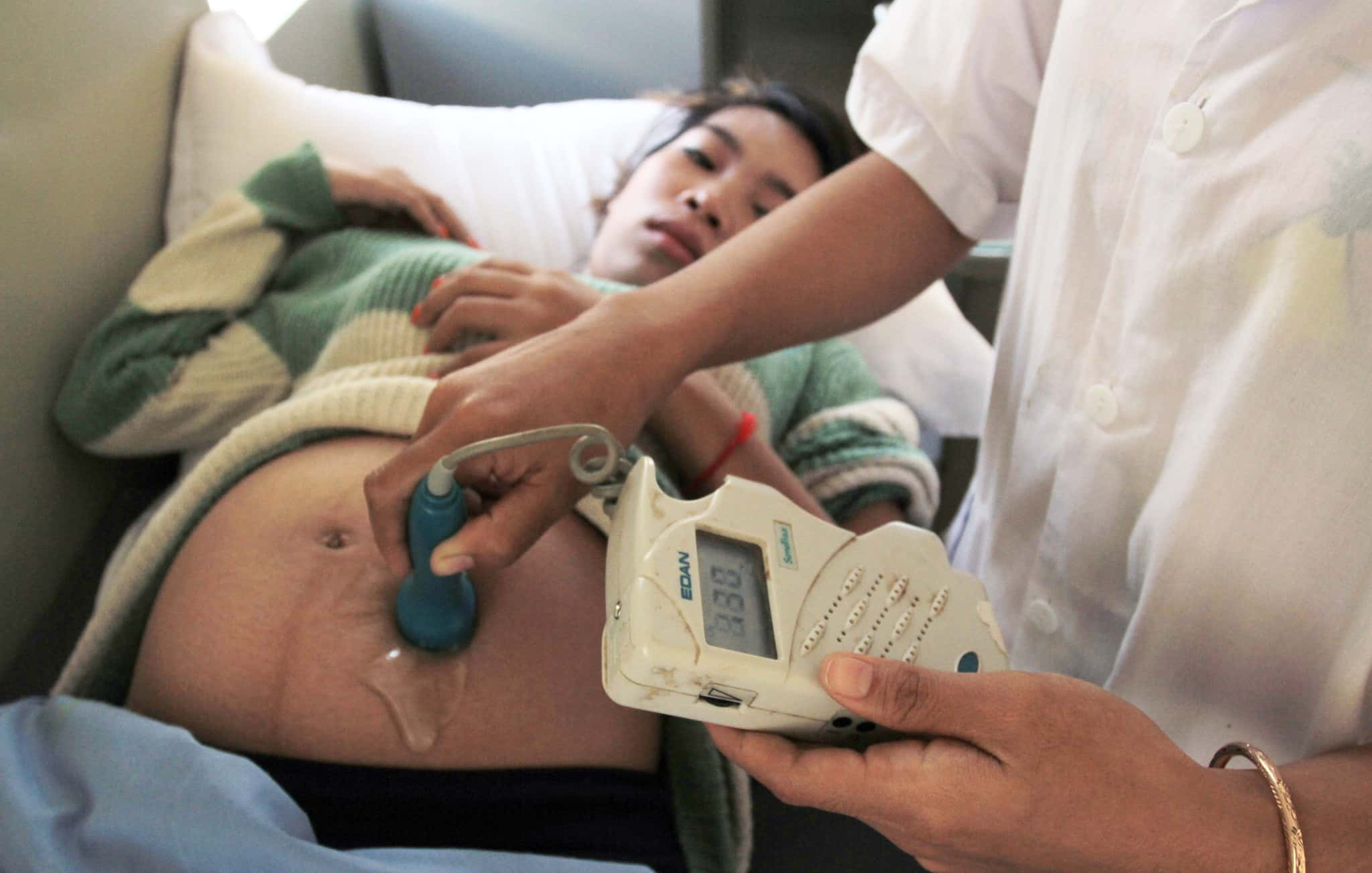 Flickr, World Bank Photo Collection
Flickr, World Bank Photo Collection
48. The Next Doogie Howser, MD
When I was only five years old, I suffered from enormous headaches every day for around a year and a half. It was a tough time—I underwent countless scans and even had three spinal taps within a single month, a procedure I've learned is quite risky.
Finally, after a long, weary year with doctors stumped and perhaps even thinking I was making it all up, we stumbled upon the answer in an unexpected manner...
We were at an eye check-up for my older brother. Being the typical five-year-old that I was, I playfully demanded to be examined as well because I wanted just to be like my big brother. The doctor took a look at my eyes and discovered an enormous accumulation of fluids in my brain.
In less than a fortnight, I underwent surgery to insert a shunt into my head. The doctors diagnosed me with hydrocephalus, a condition that happens when a tiny flap in your neck doesn't open properly to drain fluids. The only possible explanation we could find was a baseball hitting the back of my neck earlier that year.
I doubt that the doctor is still around, but that man unquestionably preserved my life's quality, if not saved my life altogether.
49. A Shocking Silver Lining
From my experience, if you're a woman, you might be brushed off by doctors more frequently than you'd expect. When I developed a low fever and described my discomfort as feeling like I had a heavy Rubik's cube in my uterus, my gynecologist just examined me, chalked it up to menstrual cramps and a flu, and sent me home.
A week later, my discomfort was worse. My family doctor dismissed it, gave me antacids, and shooed me out his clinic. One more week passed, and I was feverish and experiencing spasms. The ER's solution? Suggest over-the-counter painkillers and show me the door. I adamantly insisted on a scan but was mocked by a young nurse who told me there was no chance of getting one.
After another tormenting week confined to bed with a fever spiking at 39 C (103 F), I caught a cab to another ER. There, I spent a painful few hours hunched over a heater. But then a kind nurse with a motherly vibe came in, acknowledged how seriously ill I was, and comforted me. I was so relieved I teared up.
A scan revealed that the root of my symptoms was an abscess the size of a large egg under my fallopian tube, a muddled mix of bacteria and undetermined substances inside it. I was hospitalized for five days, receiving a mix of antibiotics and pain meds—a place of warmth compared to the torment I'd been through.
On the fifth day, I was awake in the surgical room while they removed the abscess. The sight of it reminded me of the antagonist Hexxus from the movie FernGully, and the medical staff celebrated as they successfully removed it.
When my indifferent gynecologist visited me while teaching a student doctor, I didn't hold back and let her know how much her misdiagnosis had affected me. Unapologetic, she just listened. Looking for a fresh start, I changed my doctor.
And the story doesn't stop there. Two months later, my boyfriend was growing impatient with me for still not being ready for intimacy. I was still recovering from my surgery, to which he argued that it had been ample time for recuperation. Seeing his lack of empathy, I ended the relationship. I'm thankful for this tumultuous health ordeal that revealed his true colors.
50. Don’t Assume
As an X-ray technician, I once assisted a lady who had been in a car crash around 9 in the morning. People at the scene said she was acting oddly and somewhat uncontrollably, which led them to believe she might be under the influence. This wasn't a wild assumption, given our local area is known for its high levels of substance abuse and addiction issues.
However, it turned out the woman's strange behavior was due to a liver laceration she sustained in the accident. Once she had undergone surgery and was out of the operating room, her behavior dramatically improved, revealing a truly delightful person.
Sources: Reddit, ,

